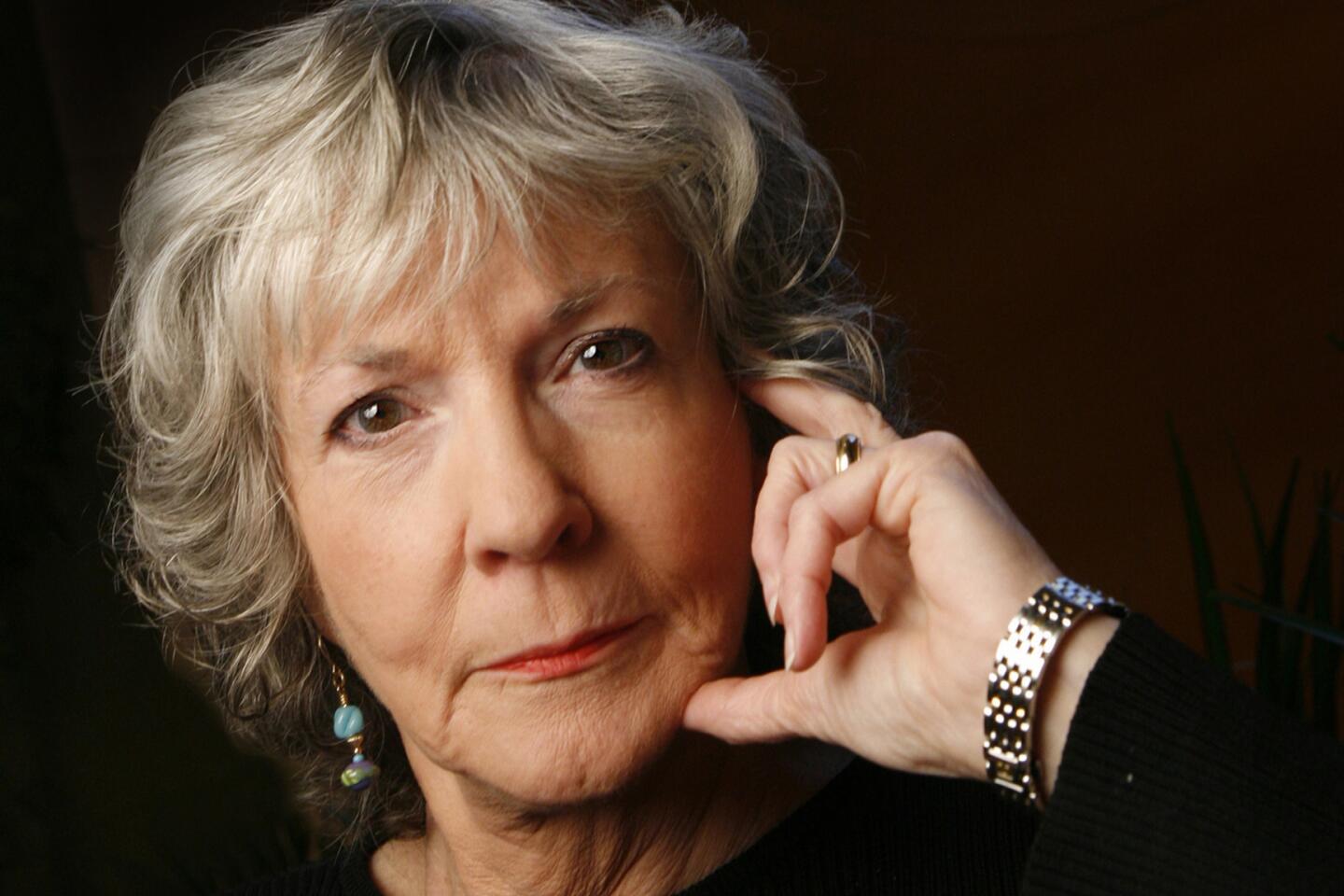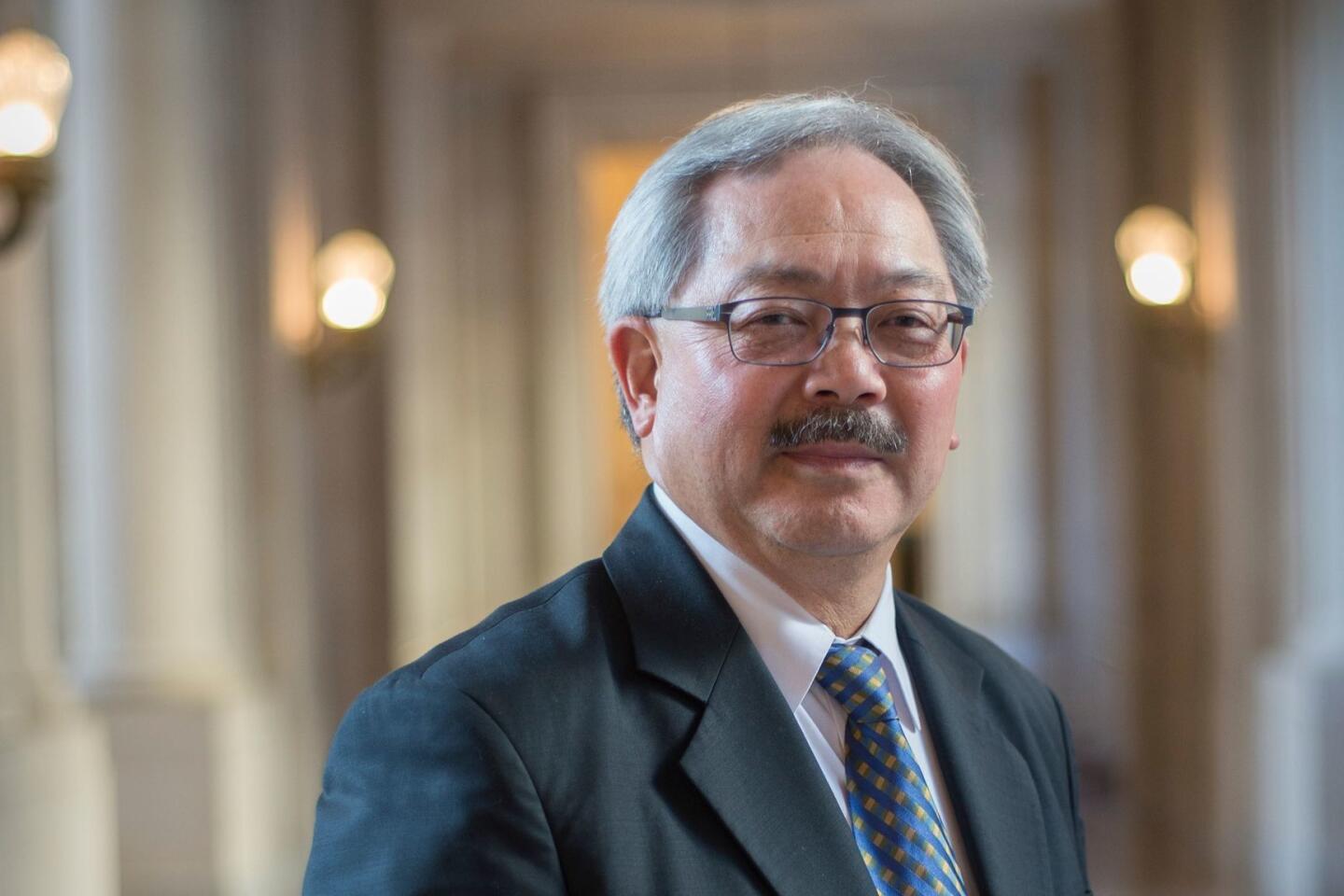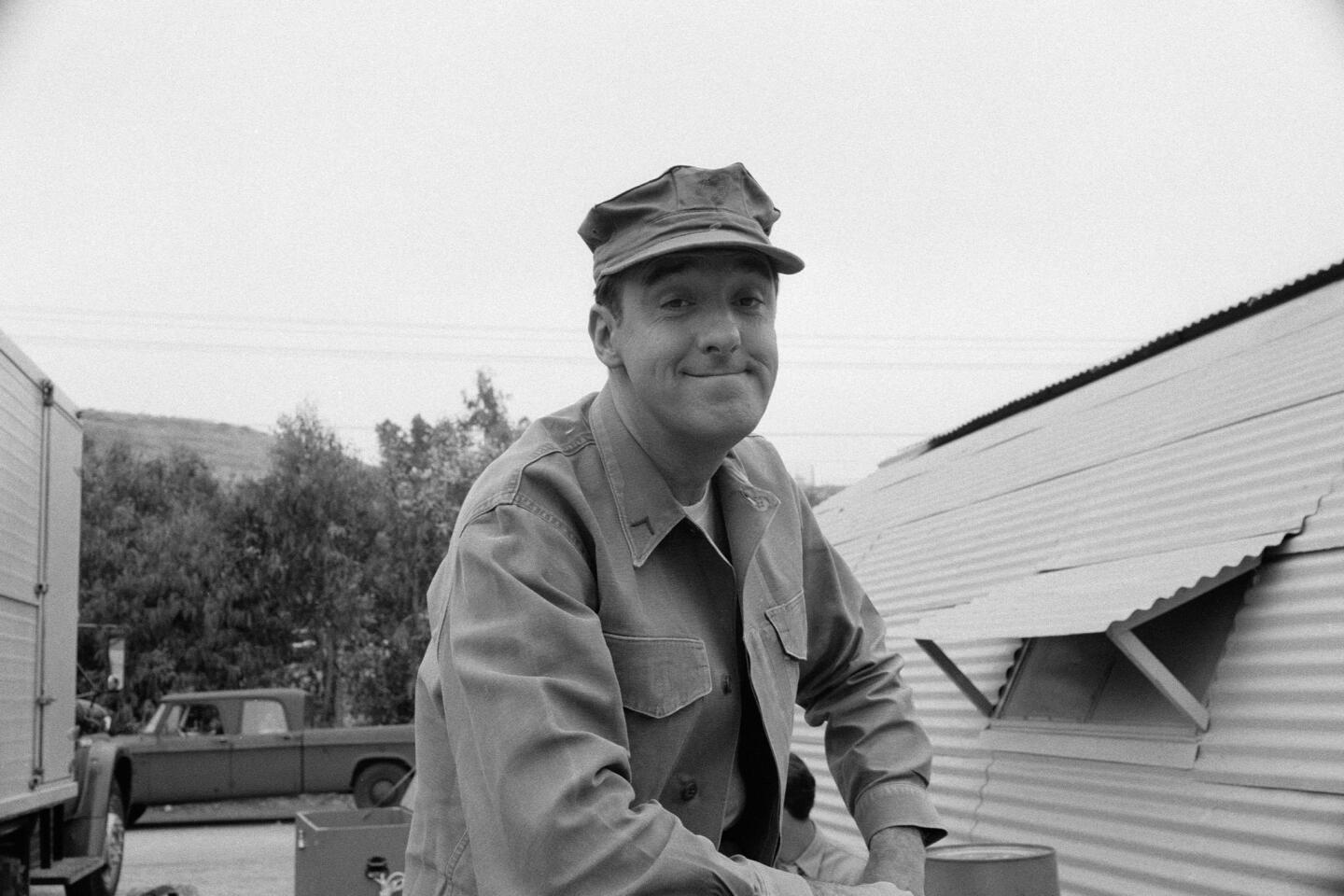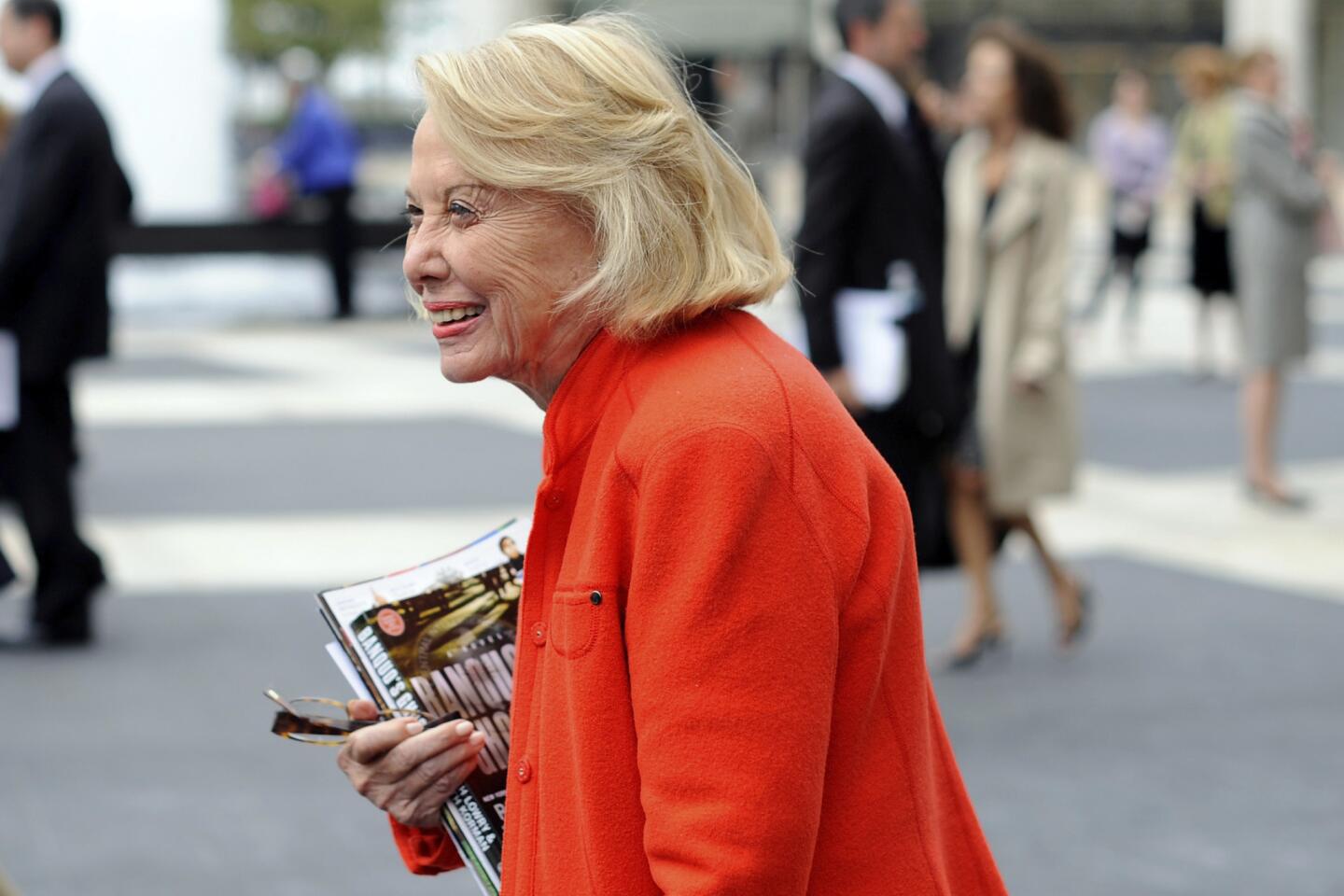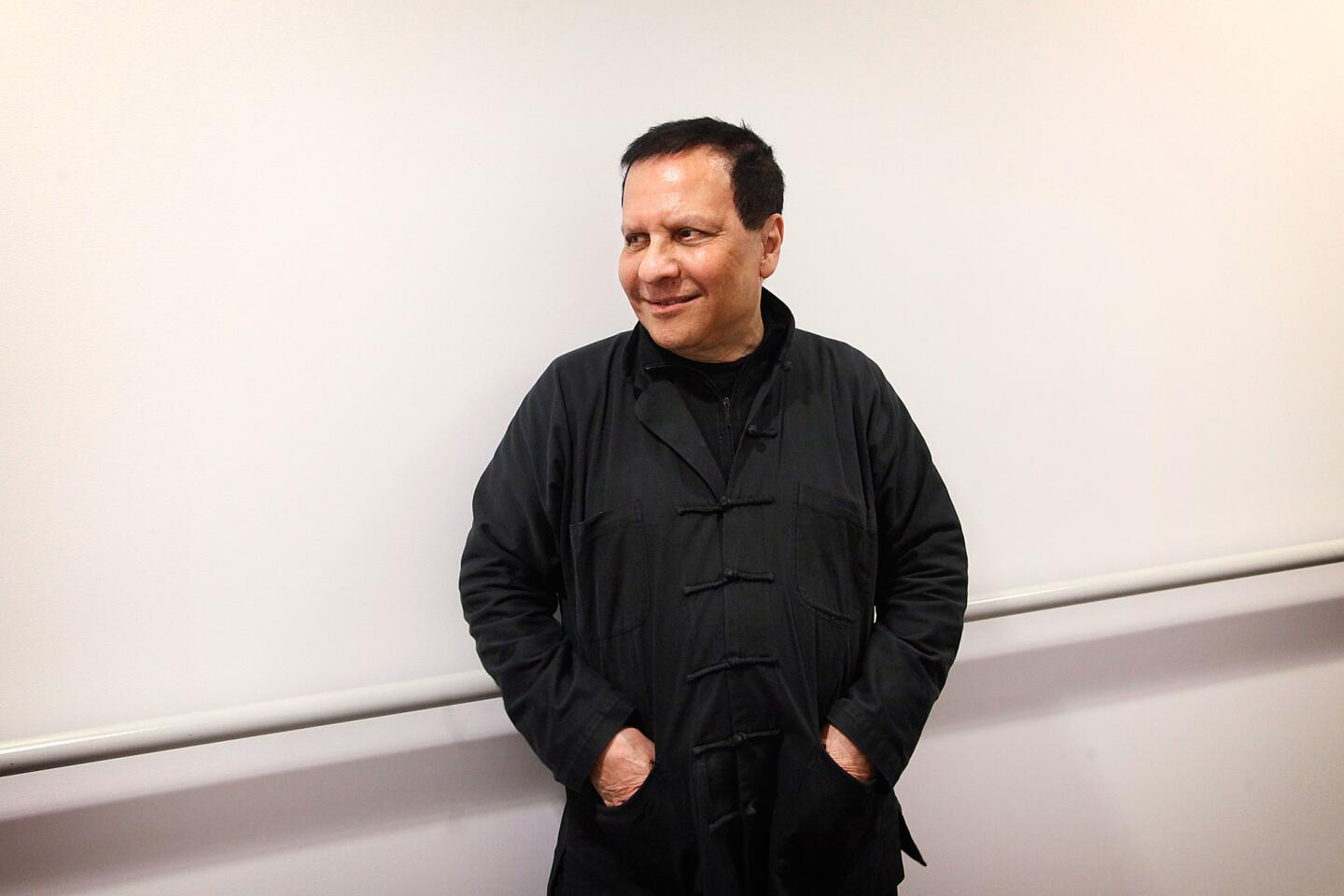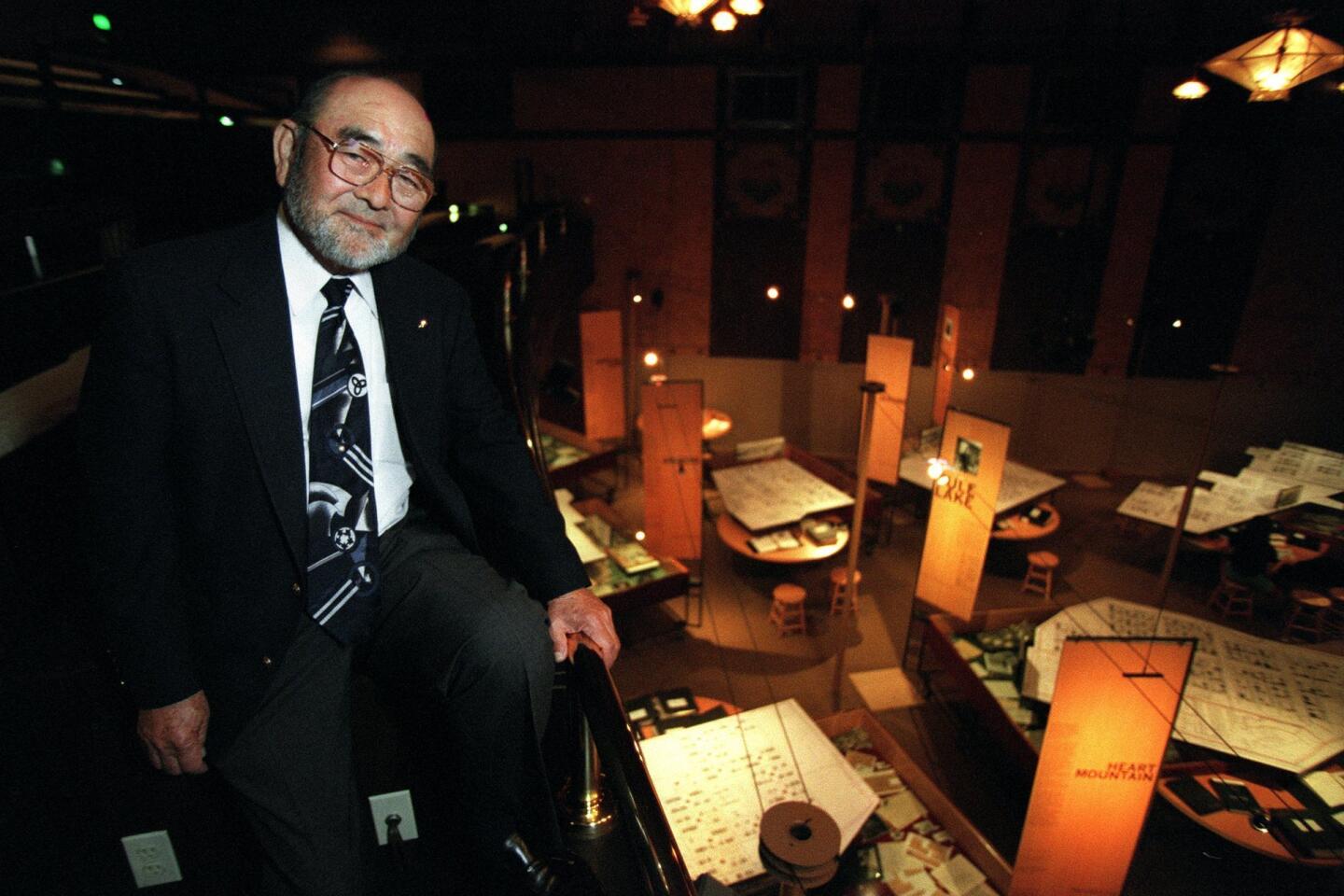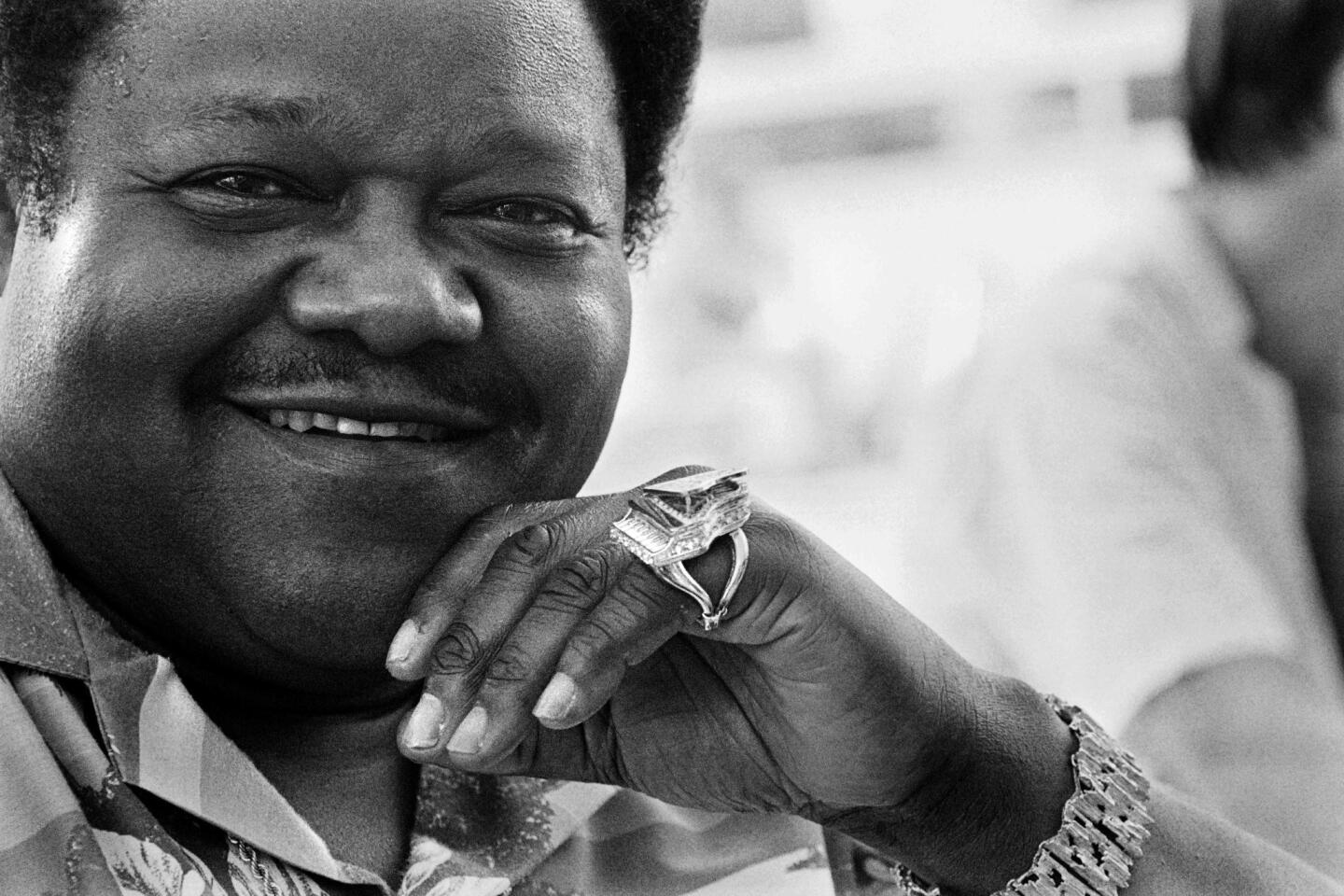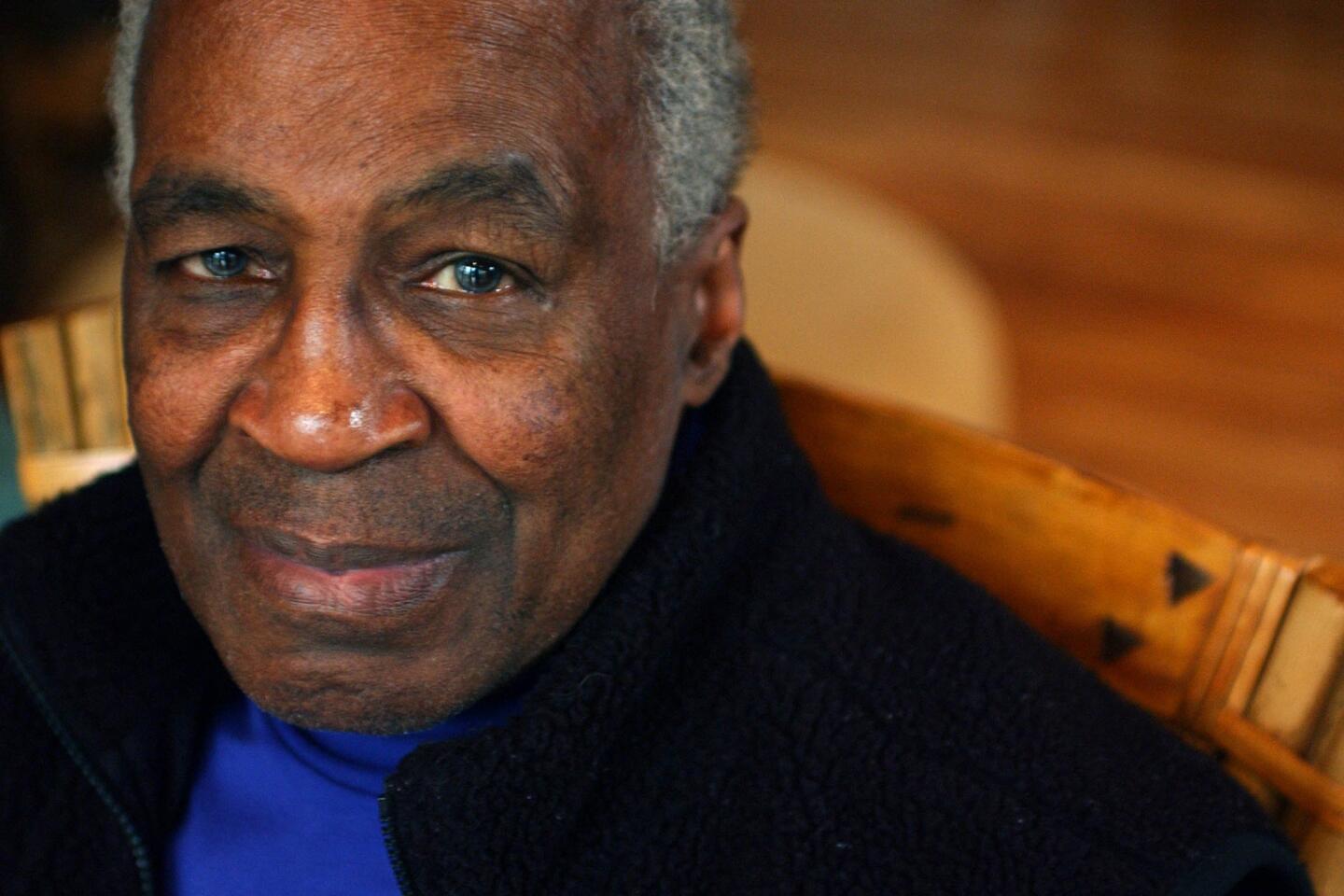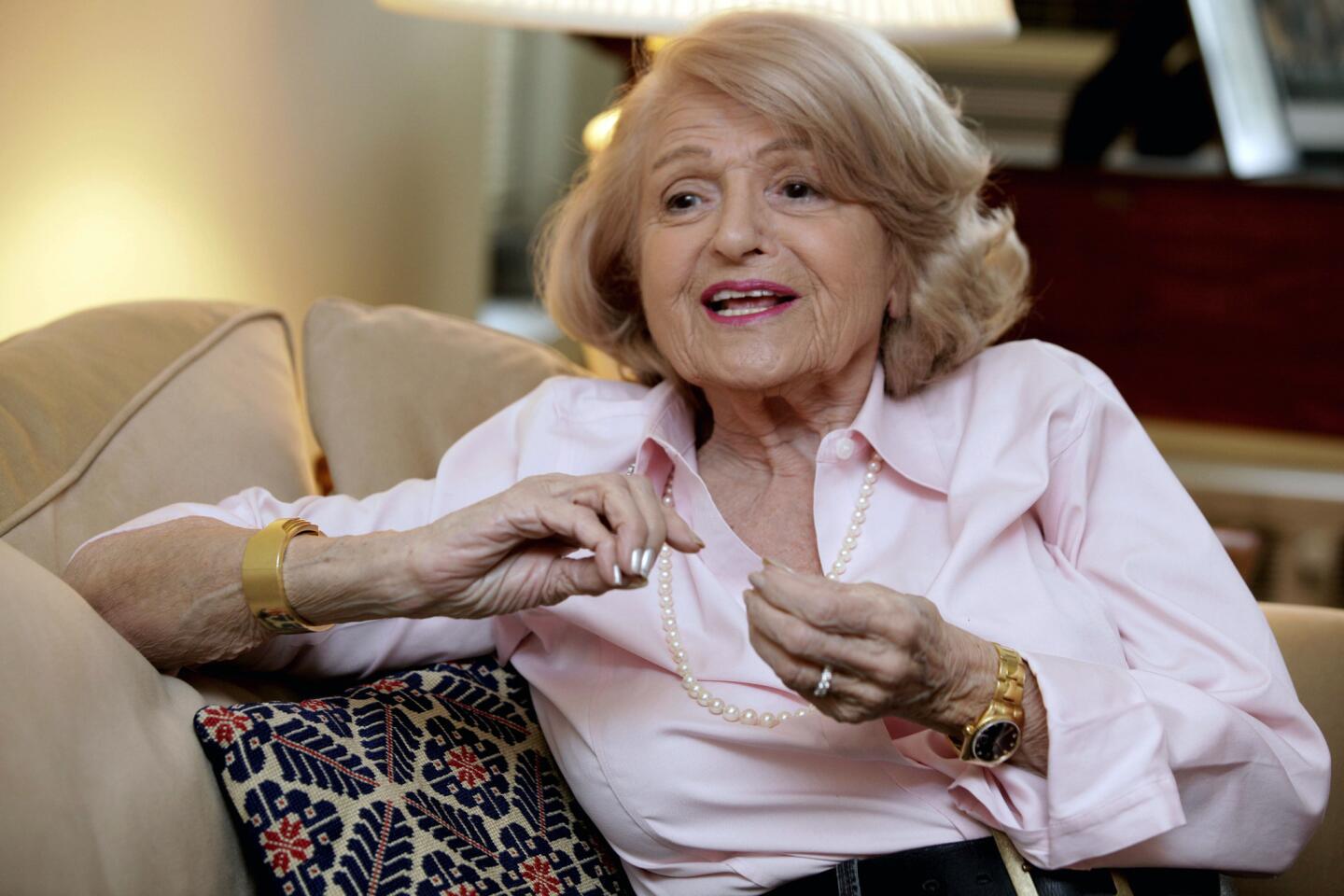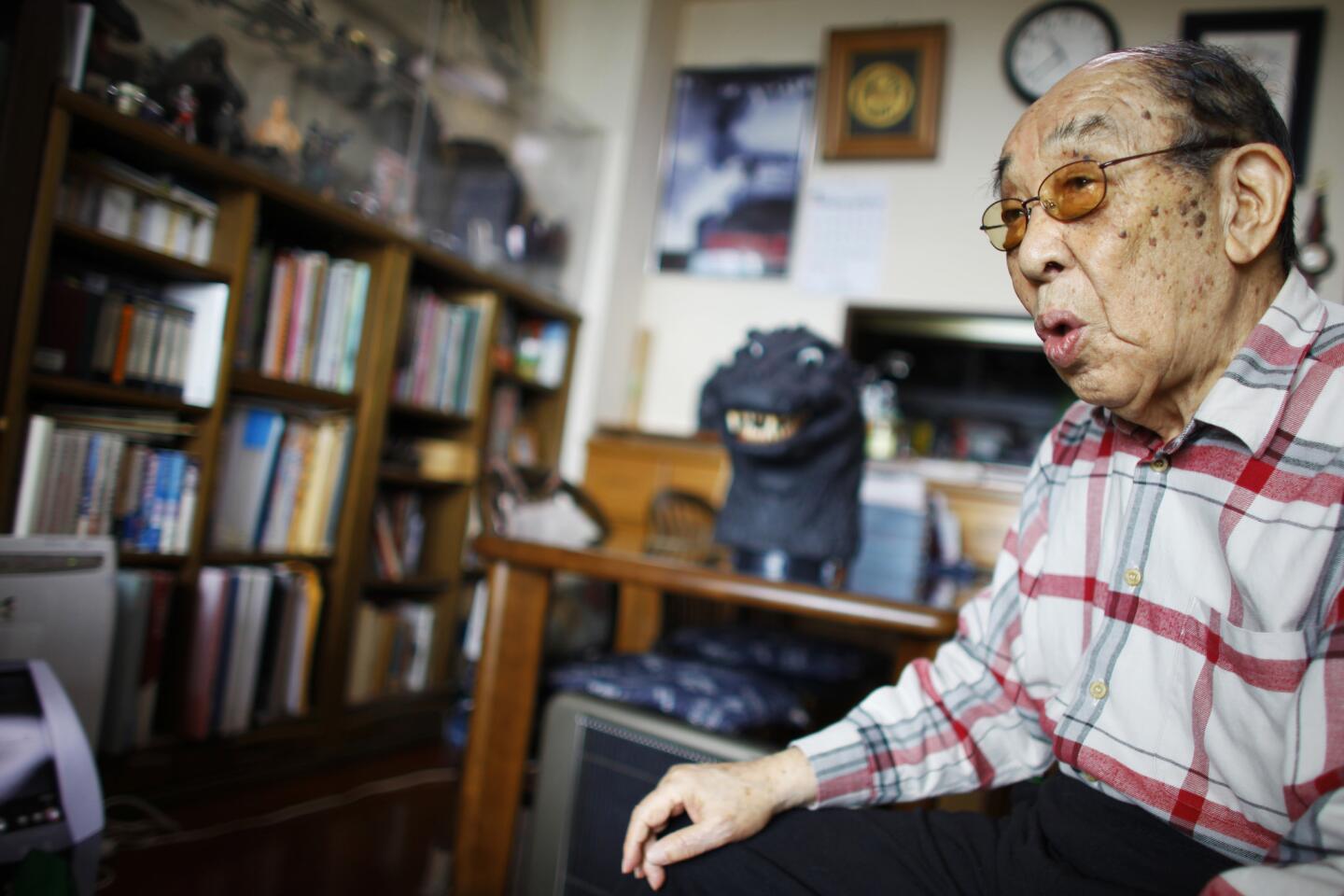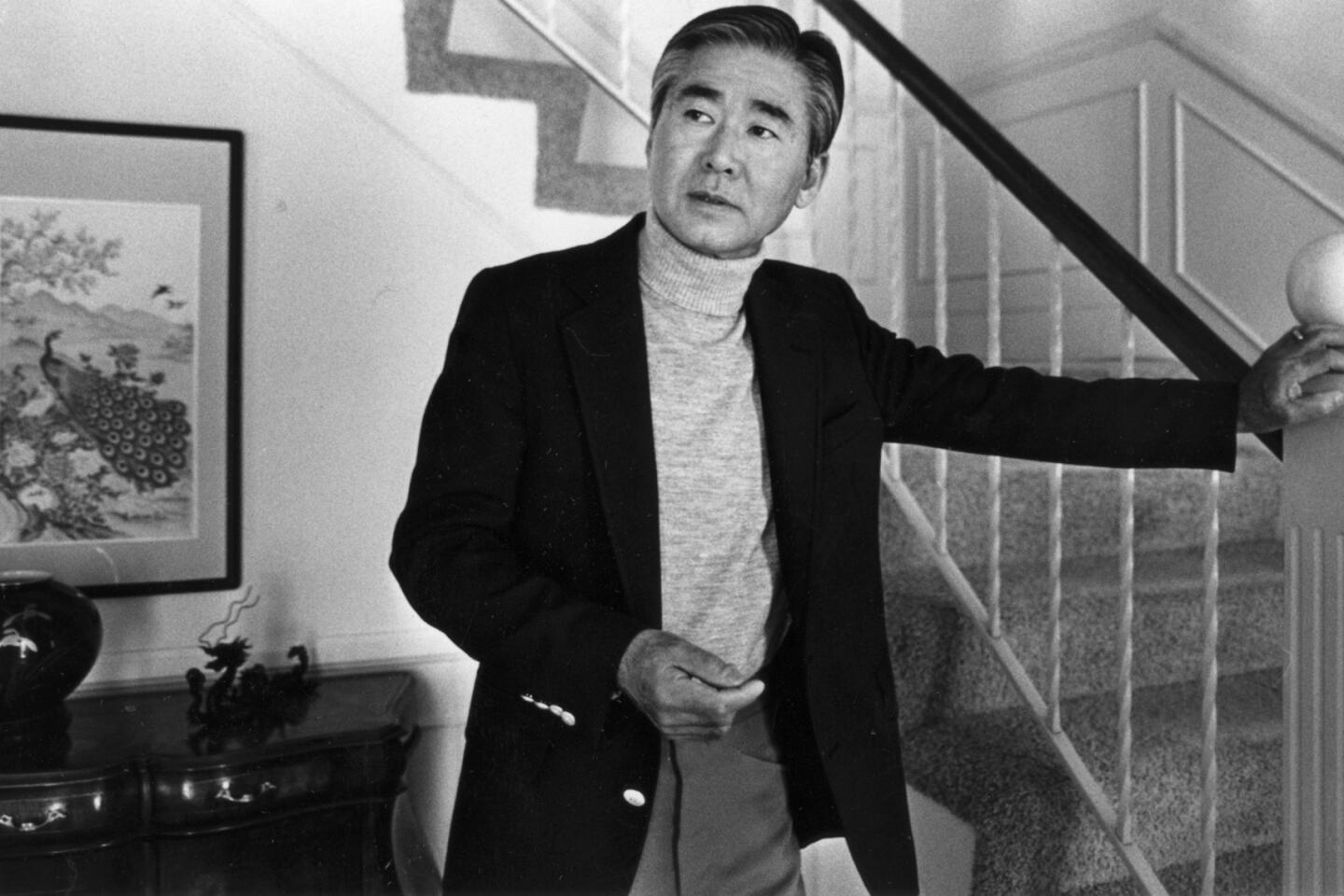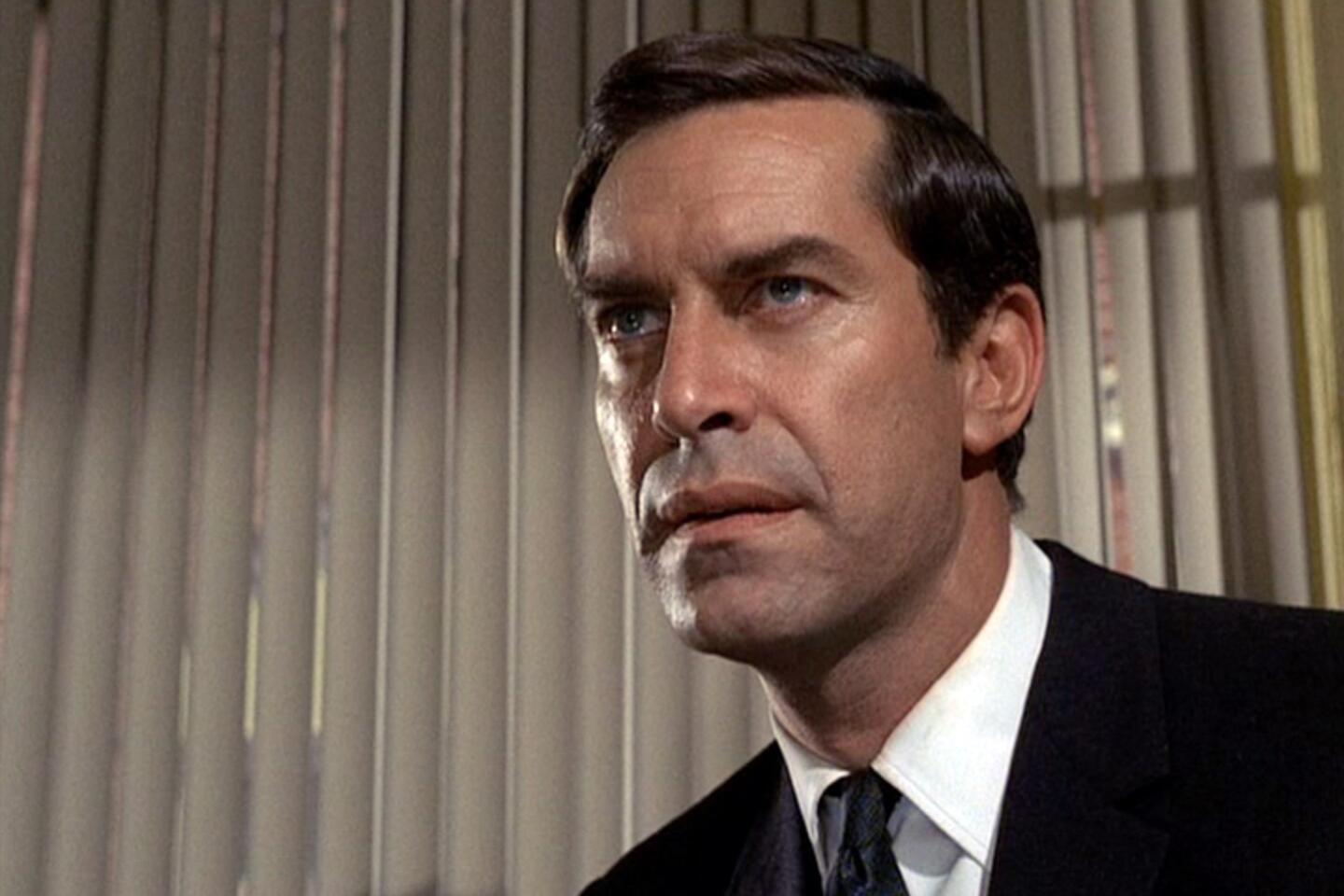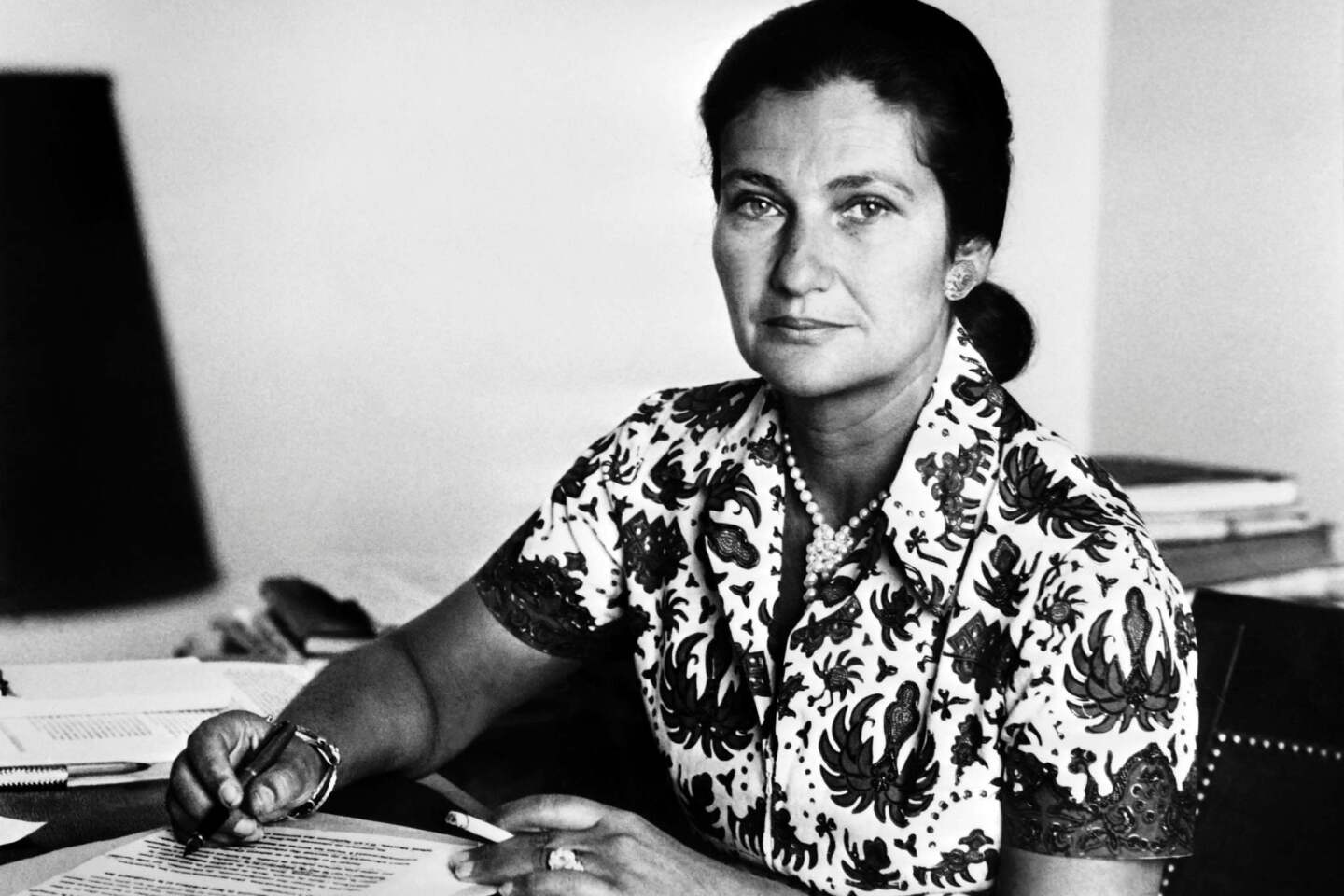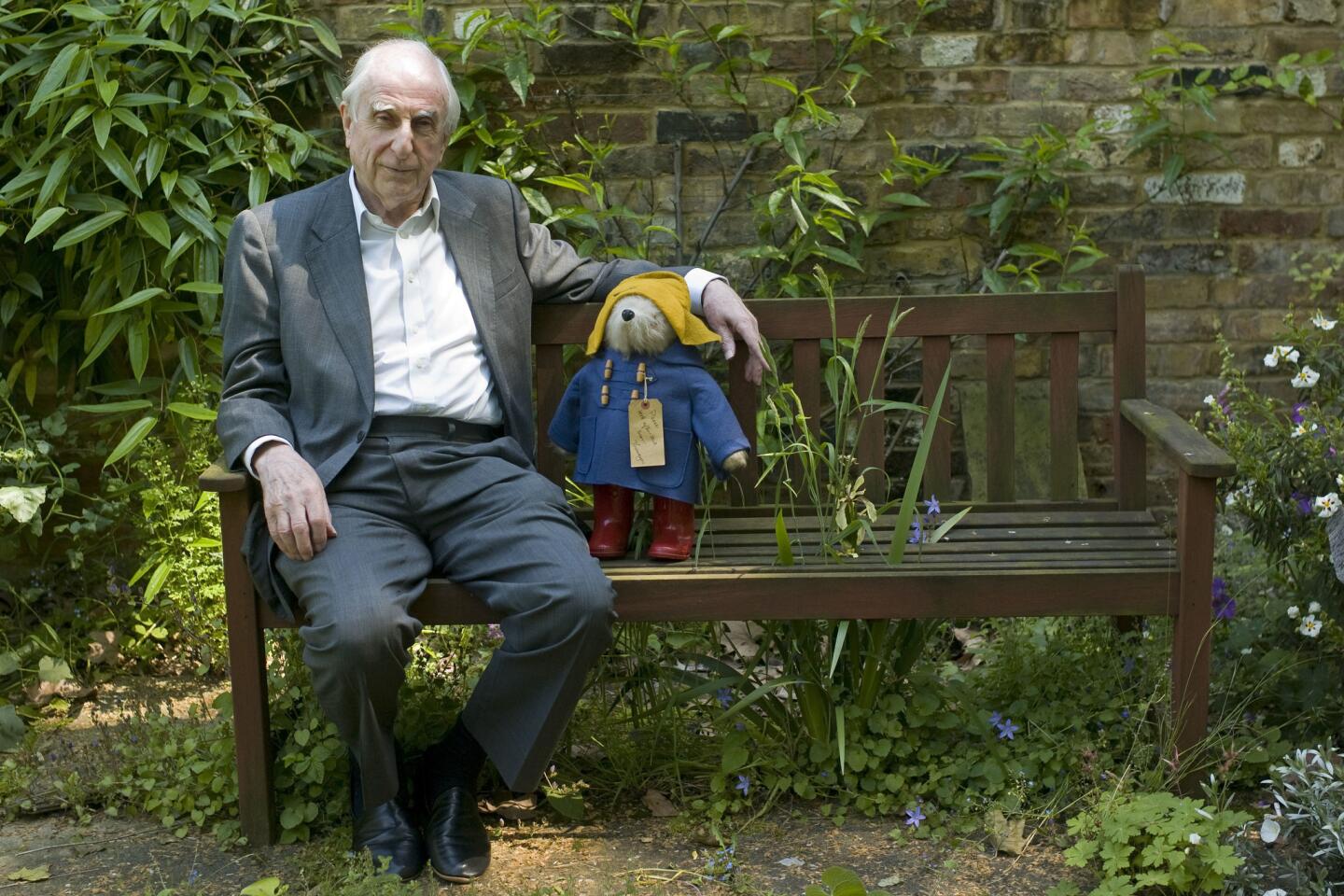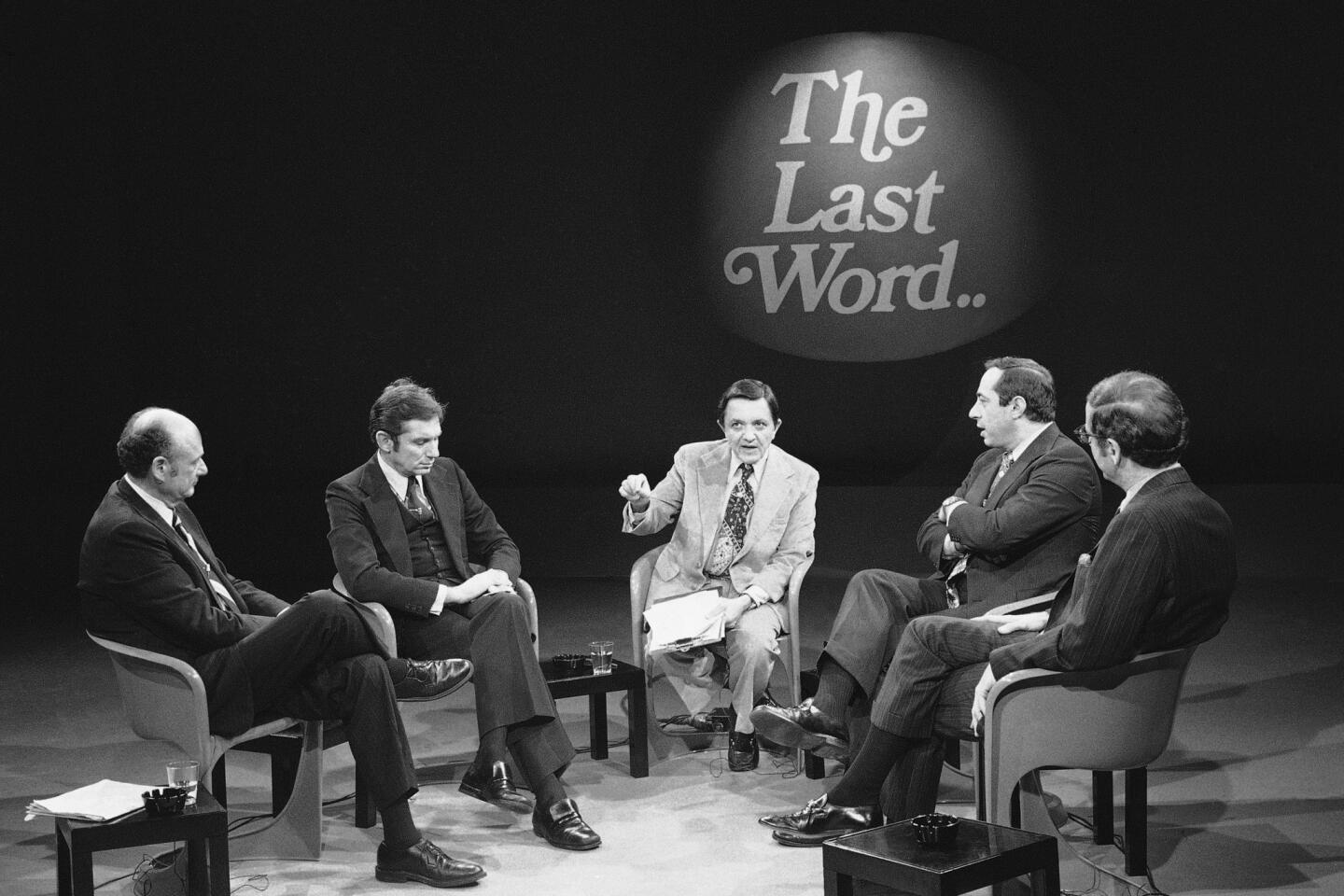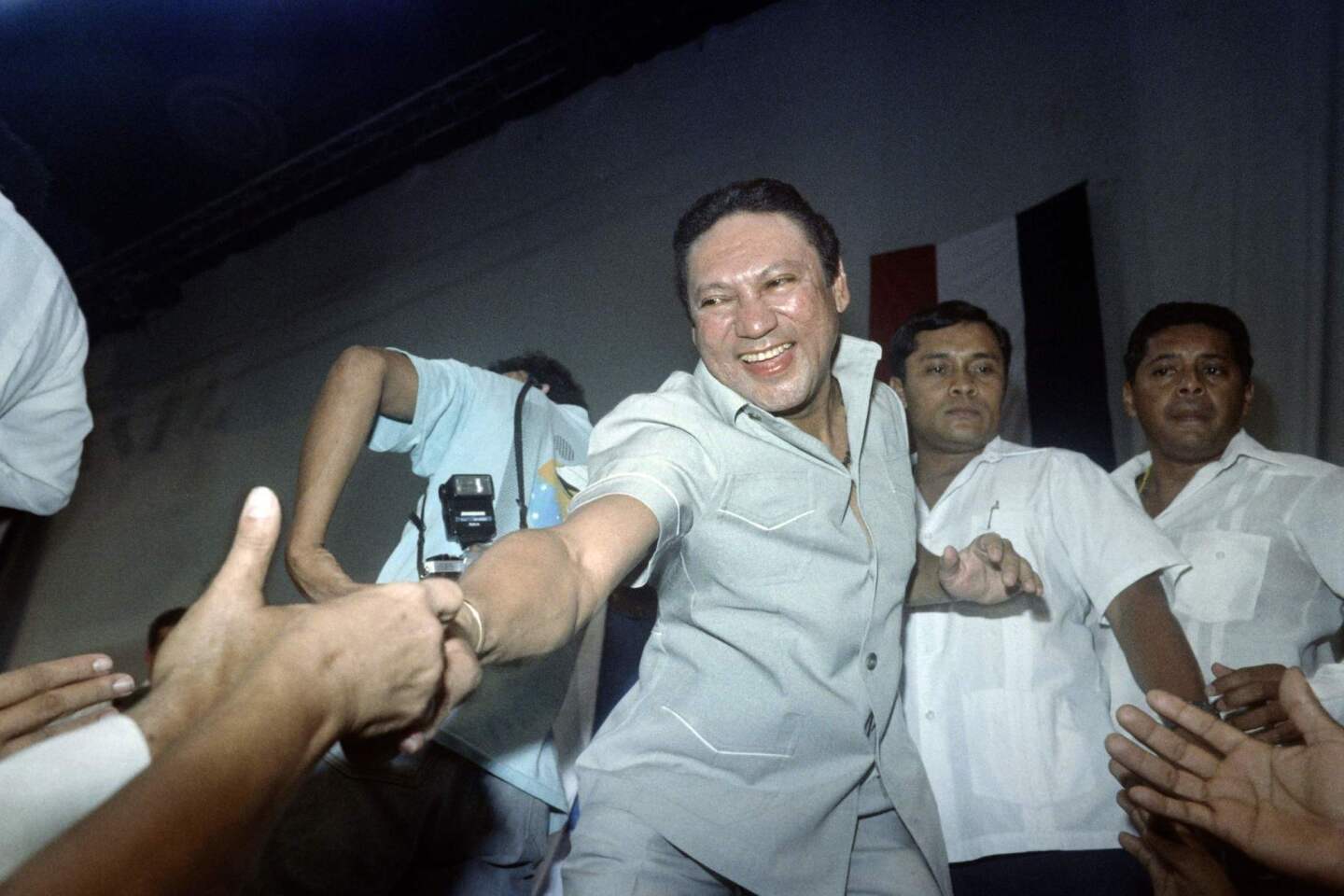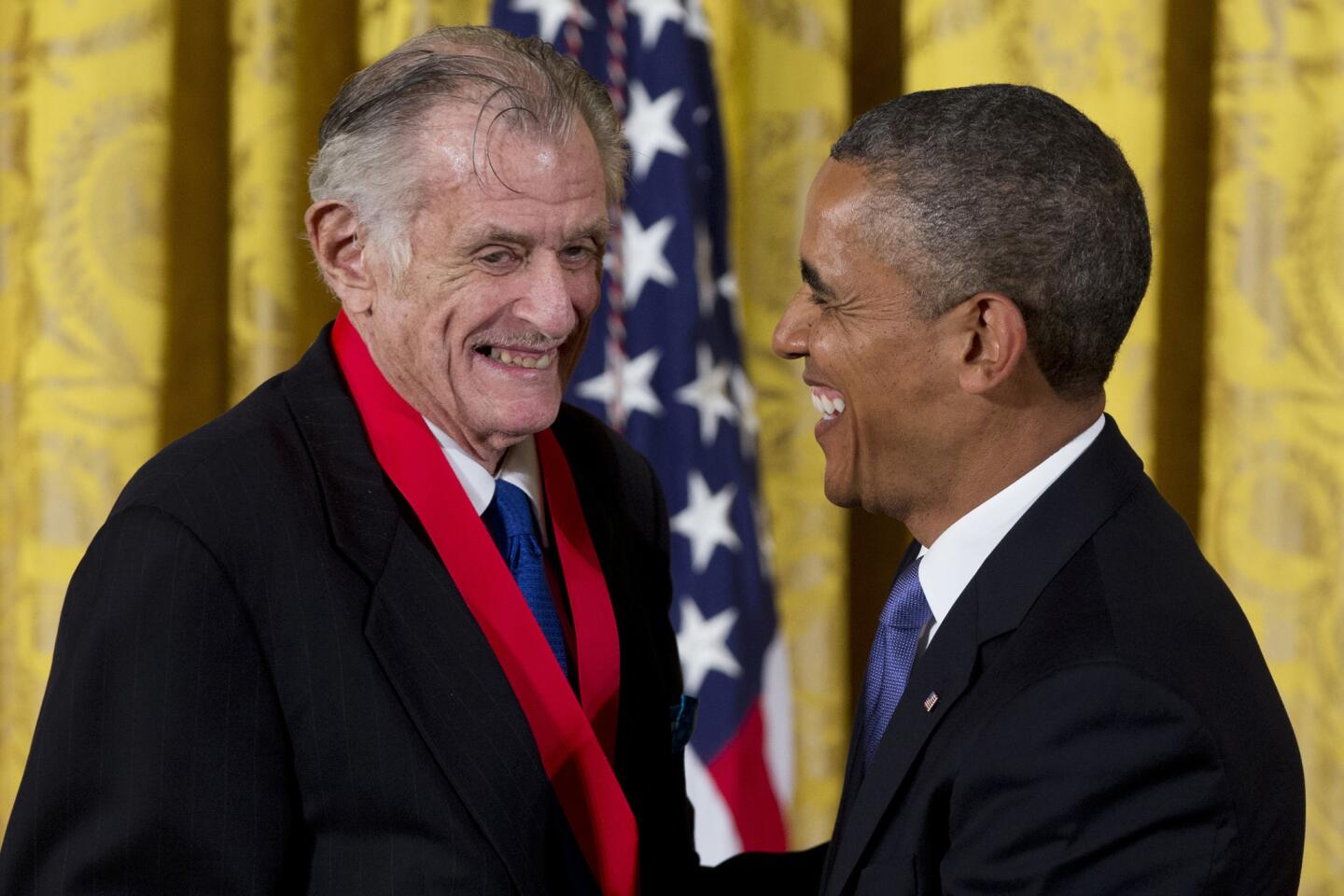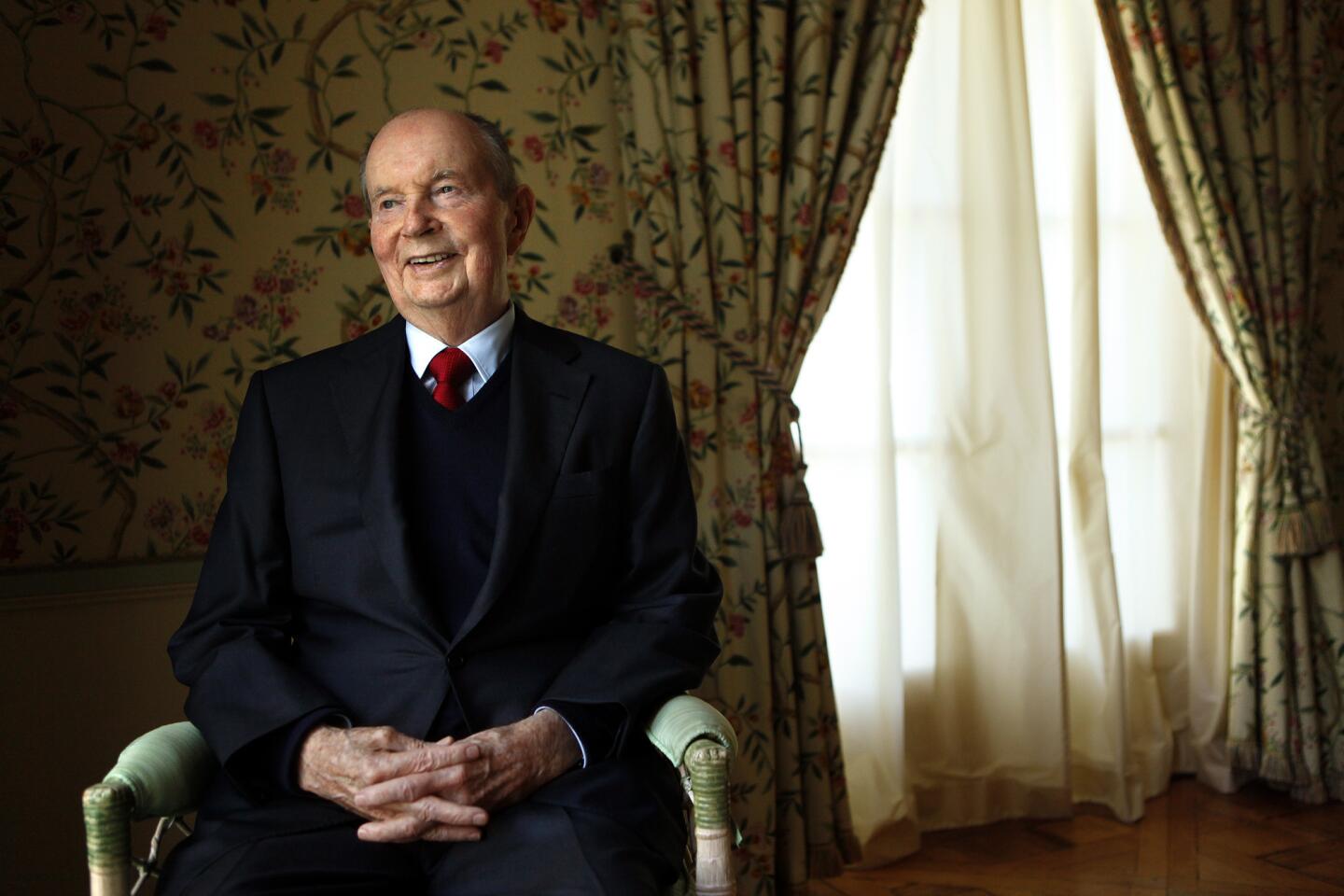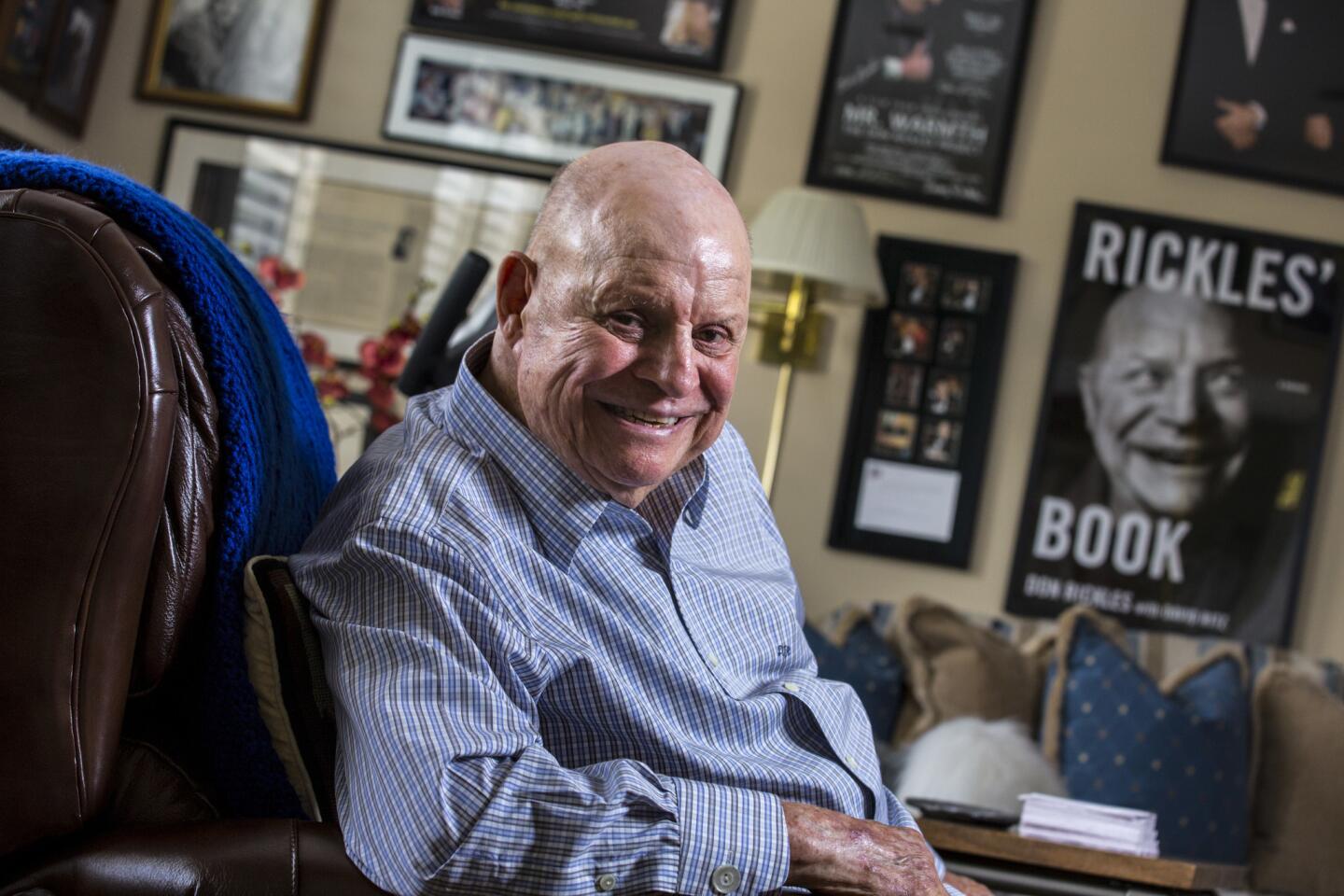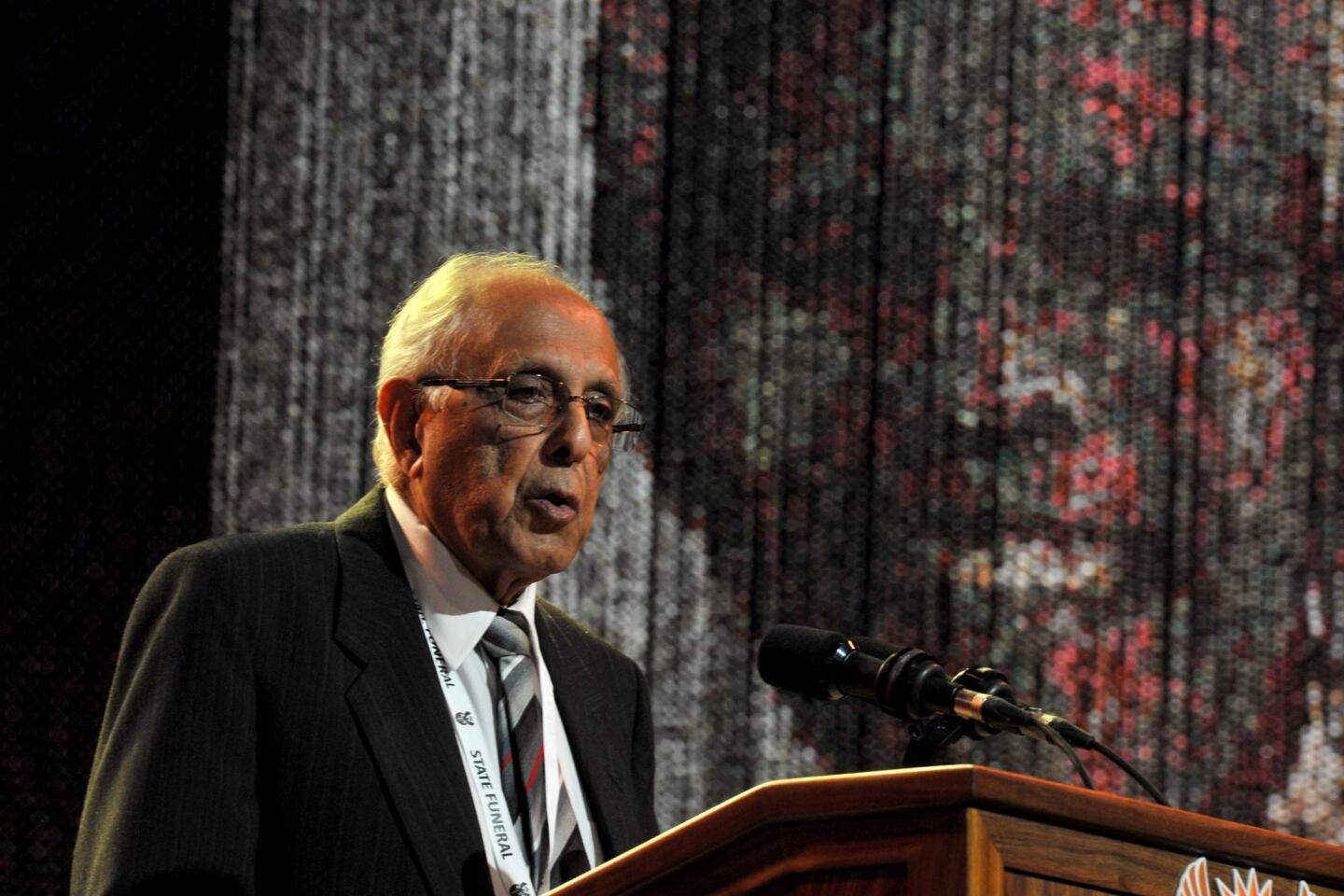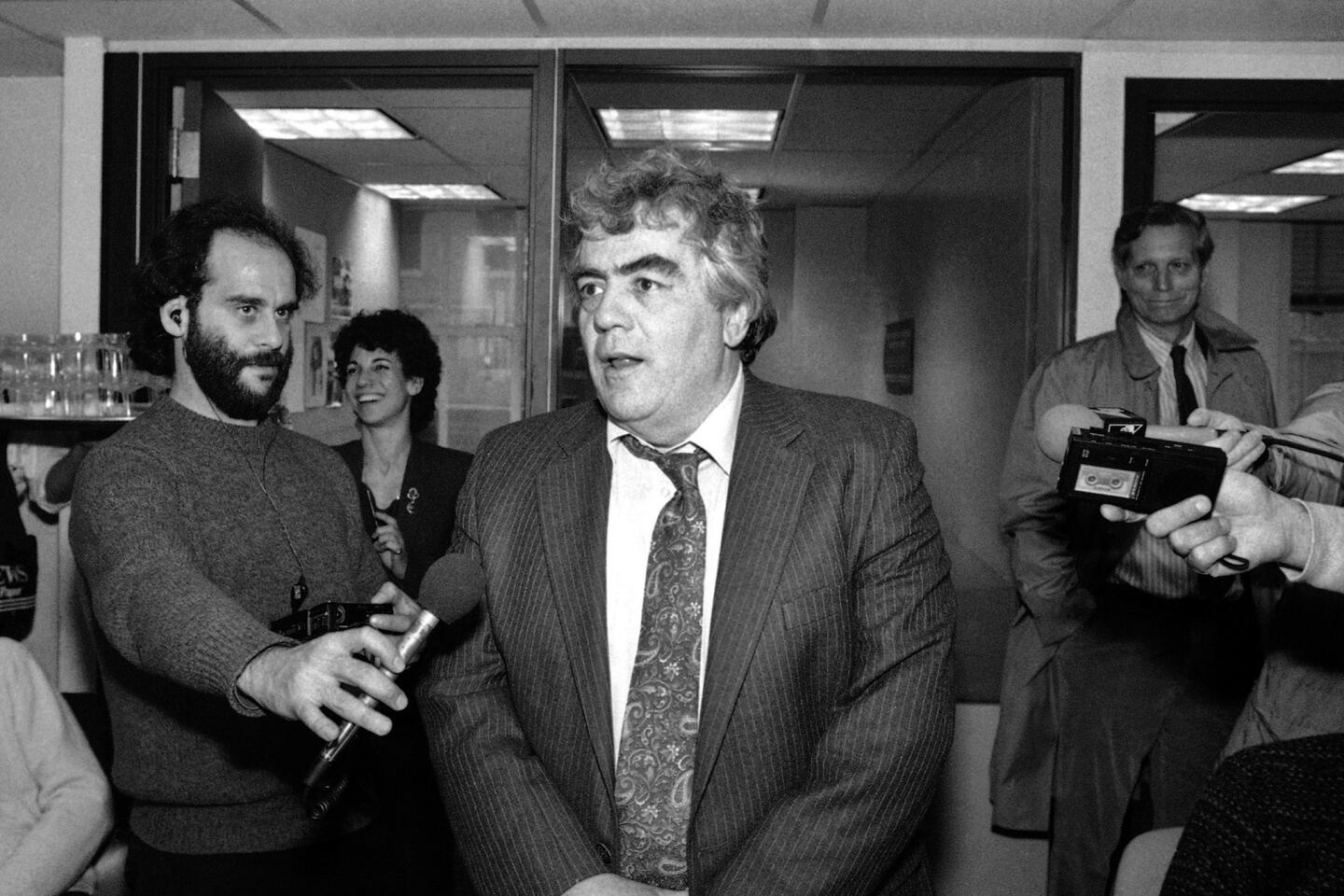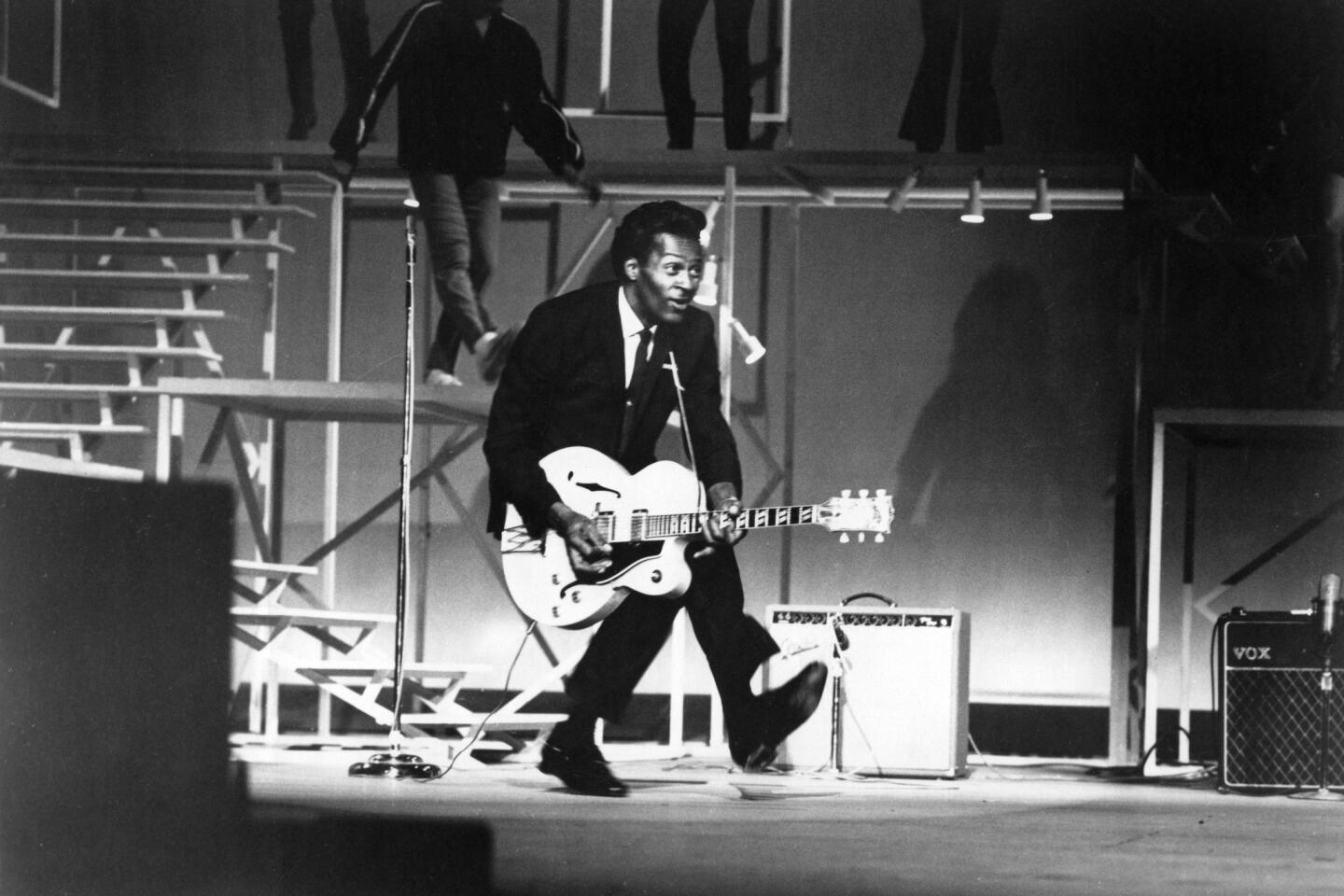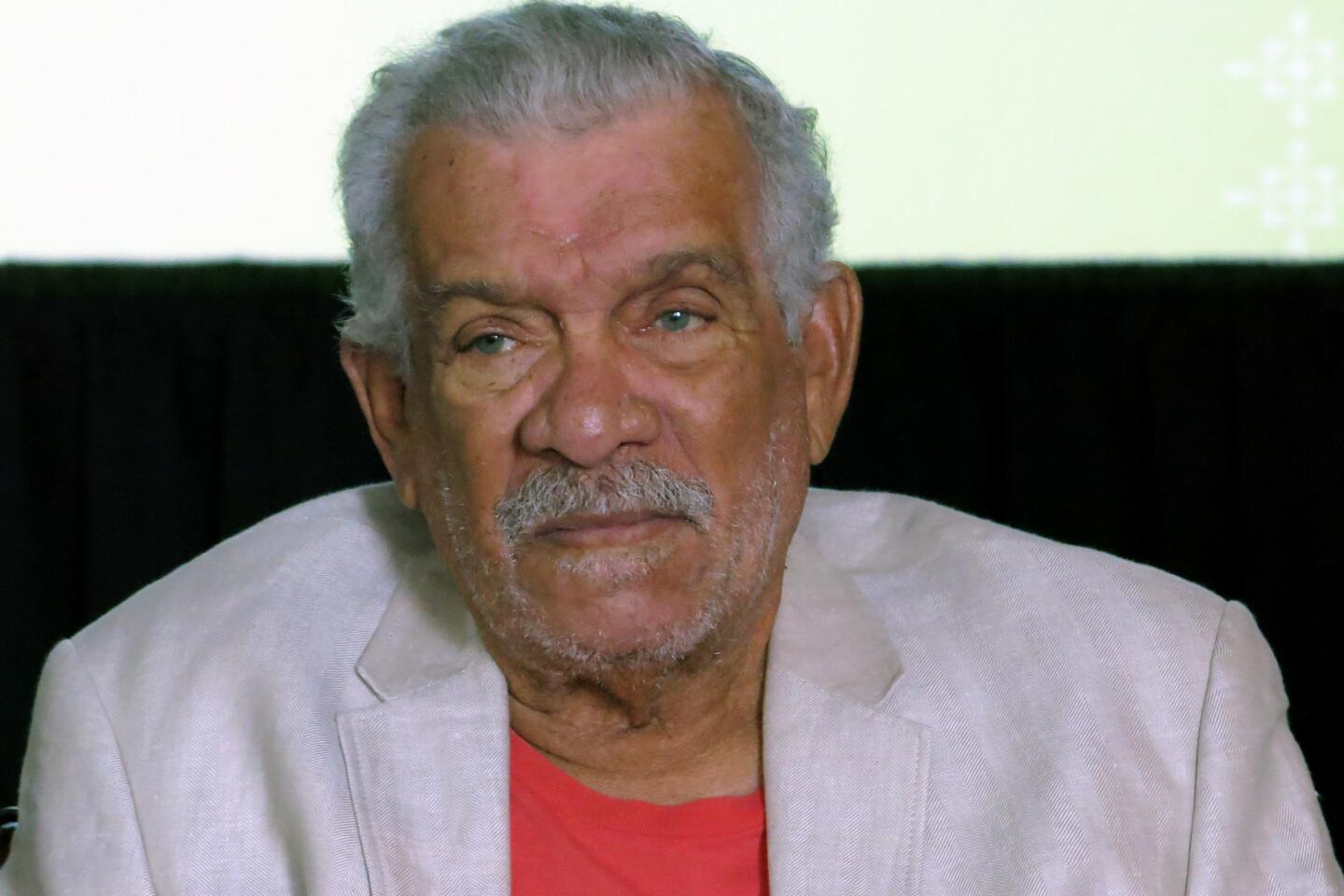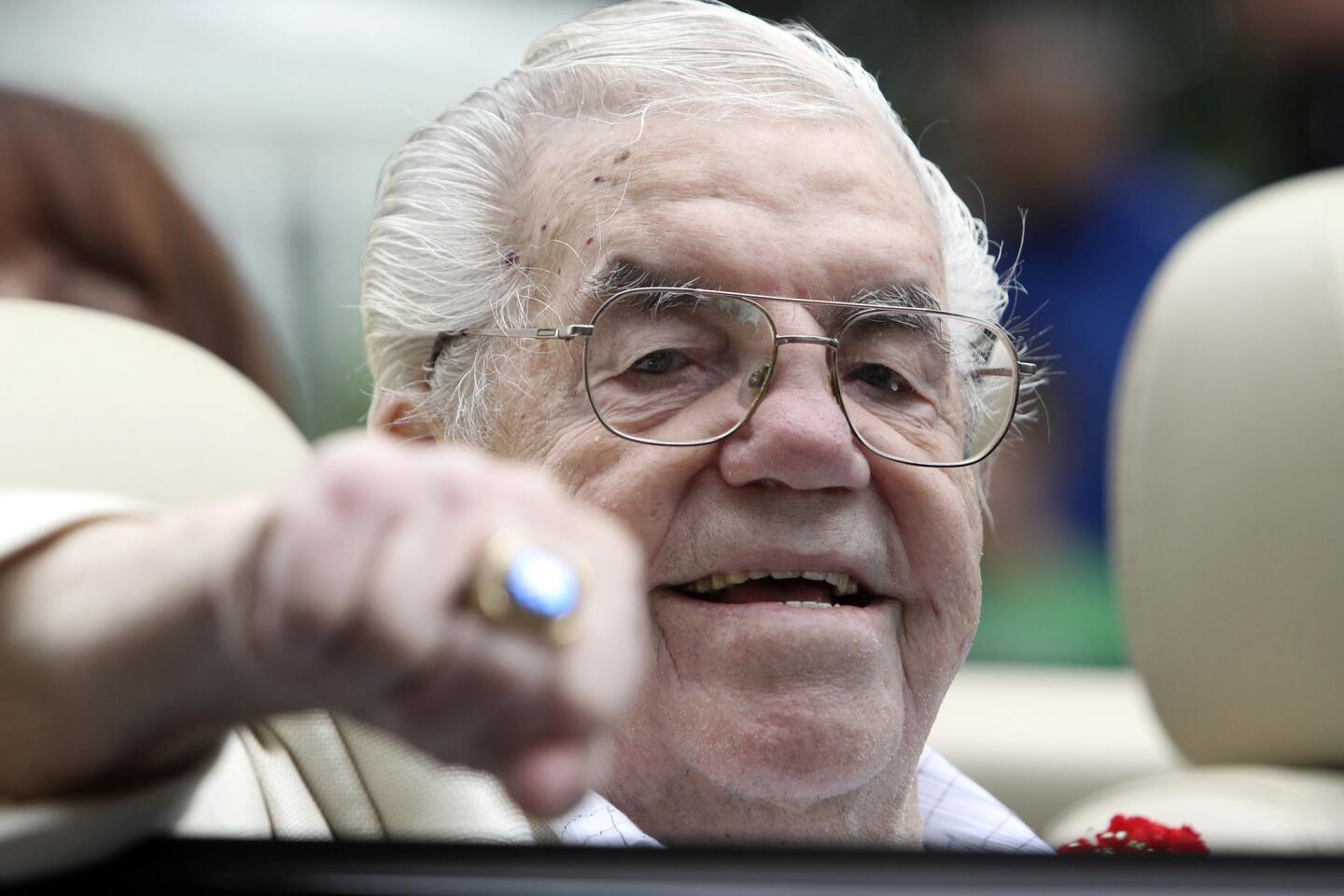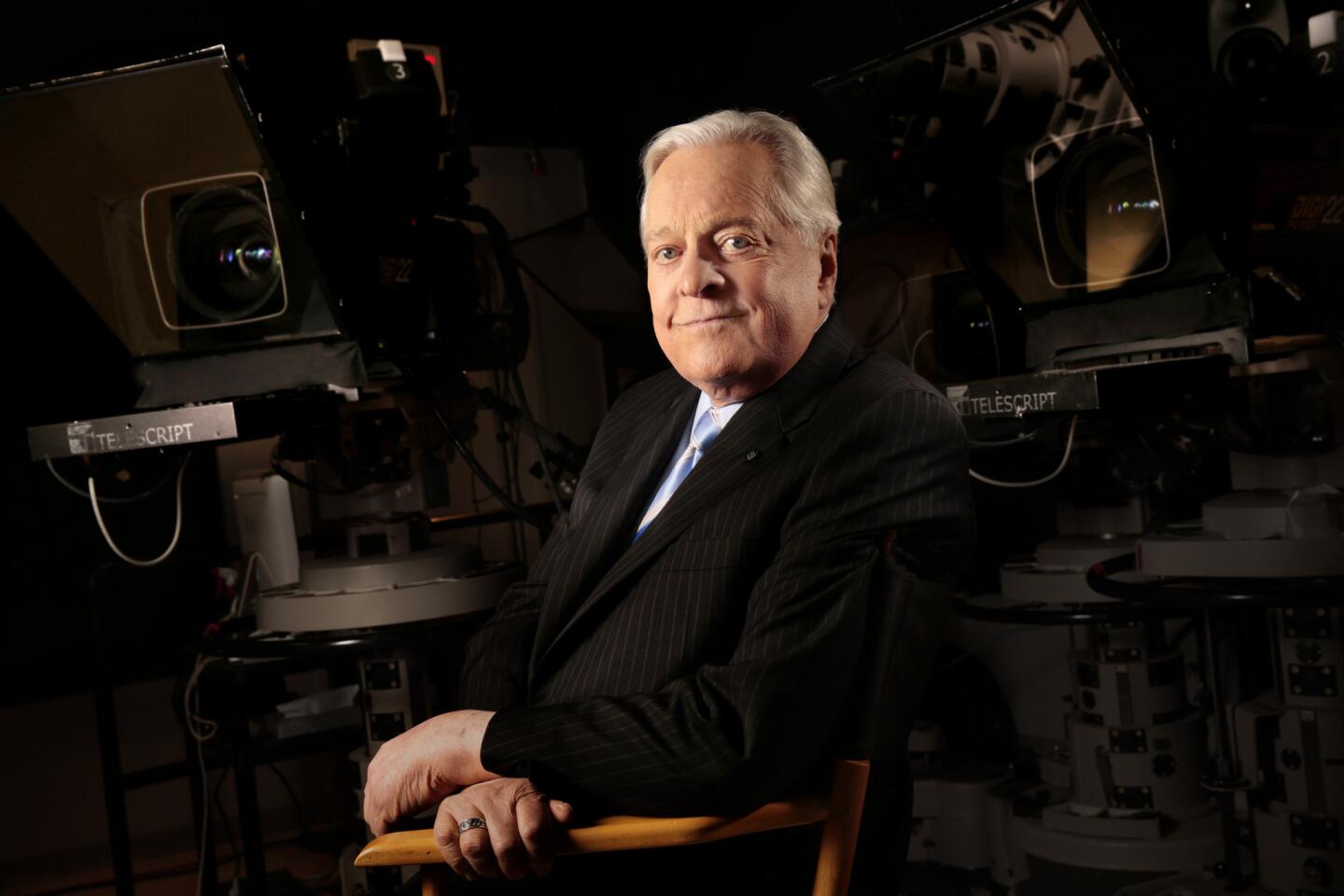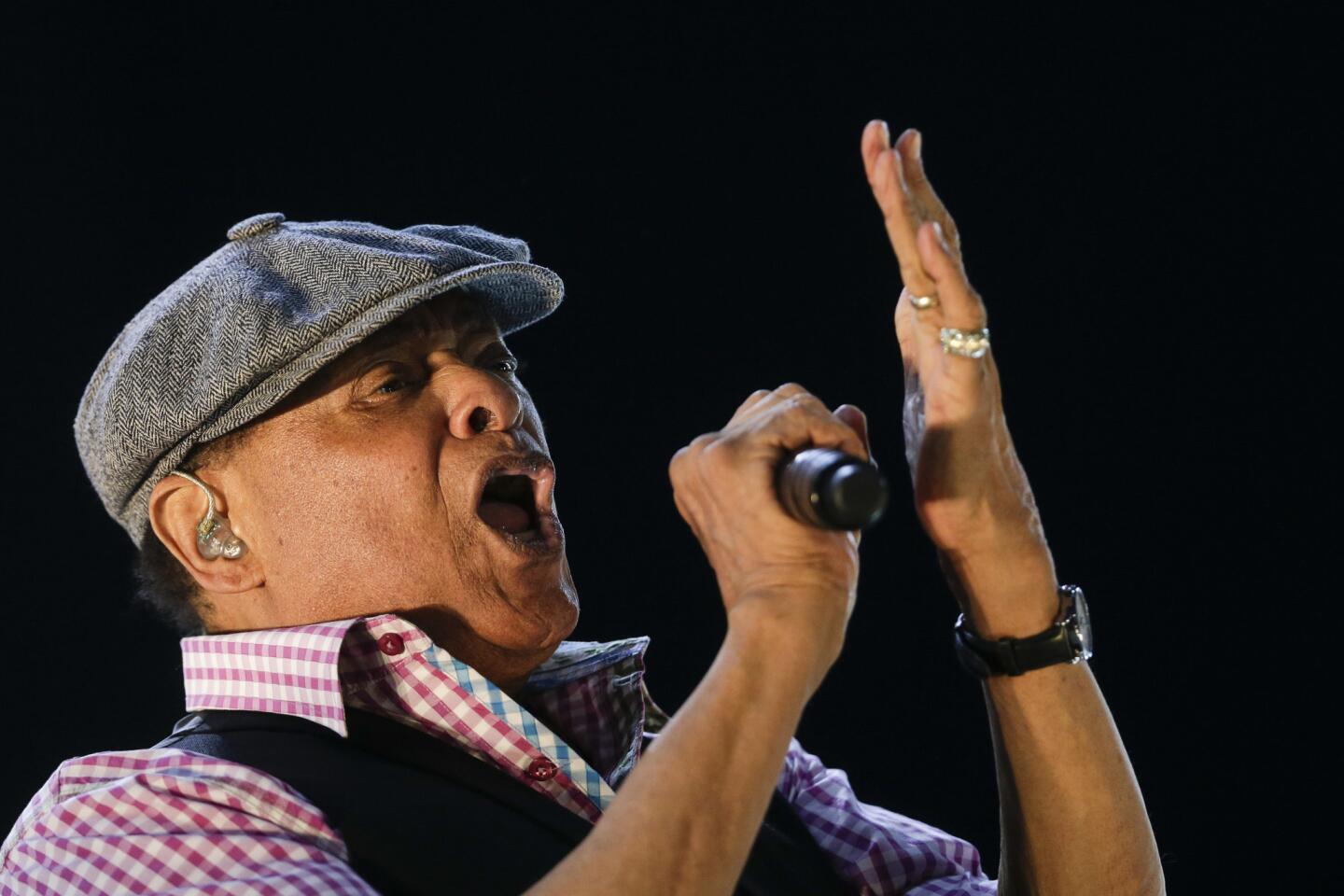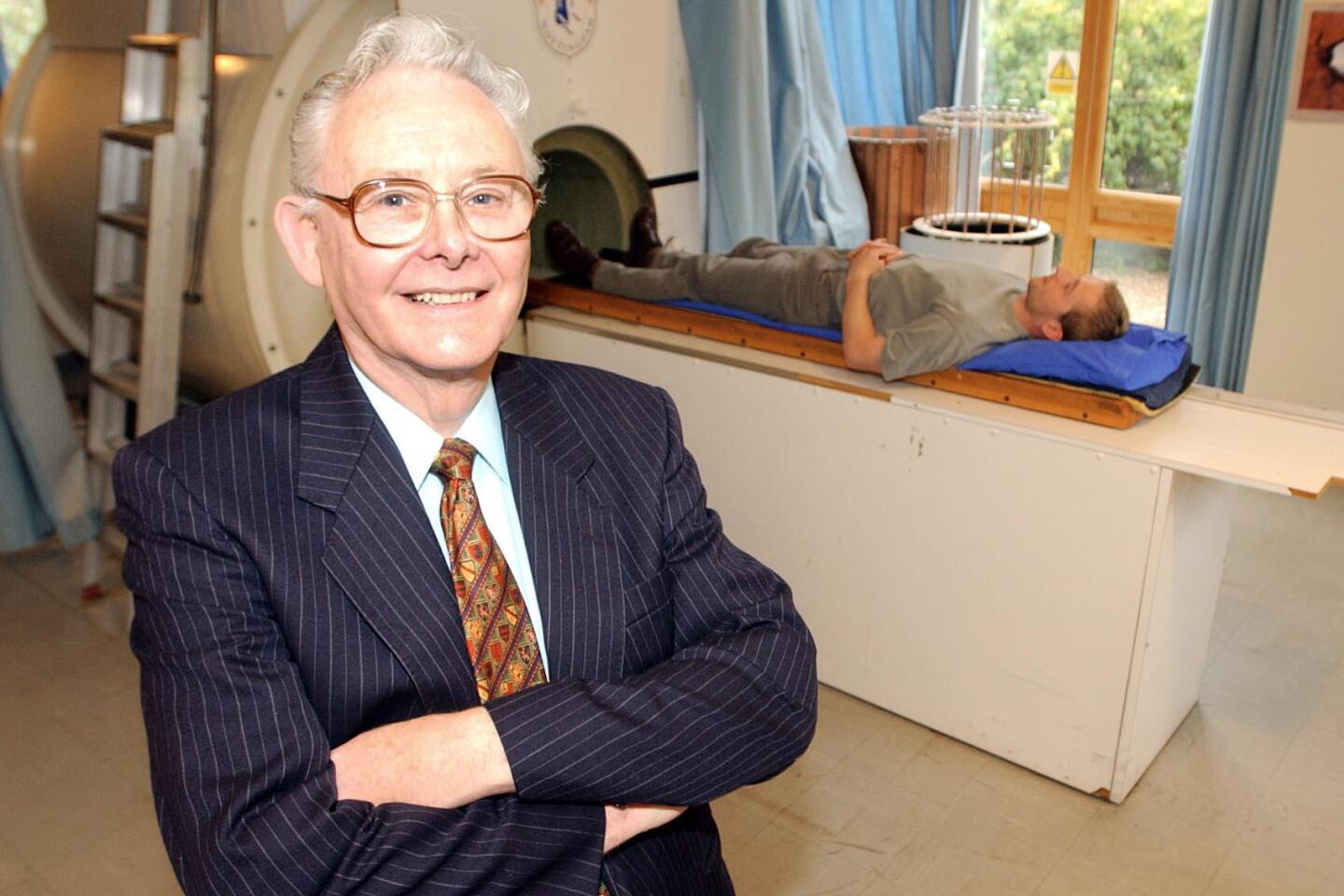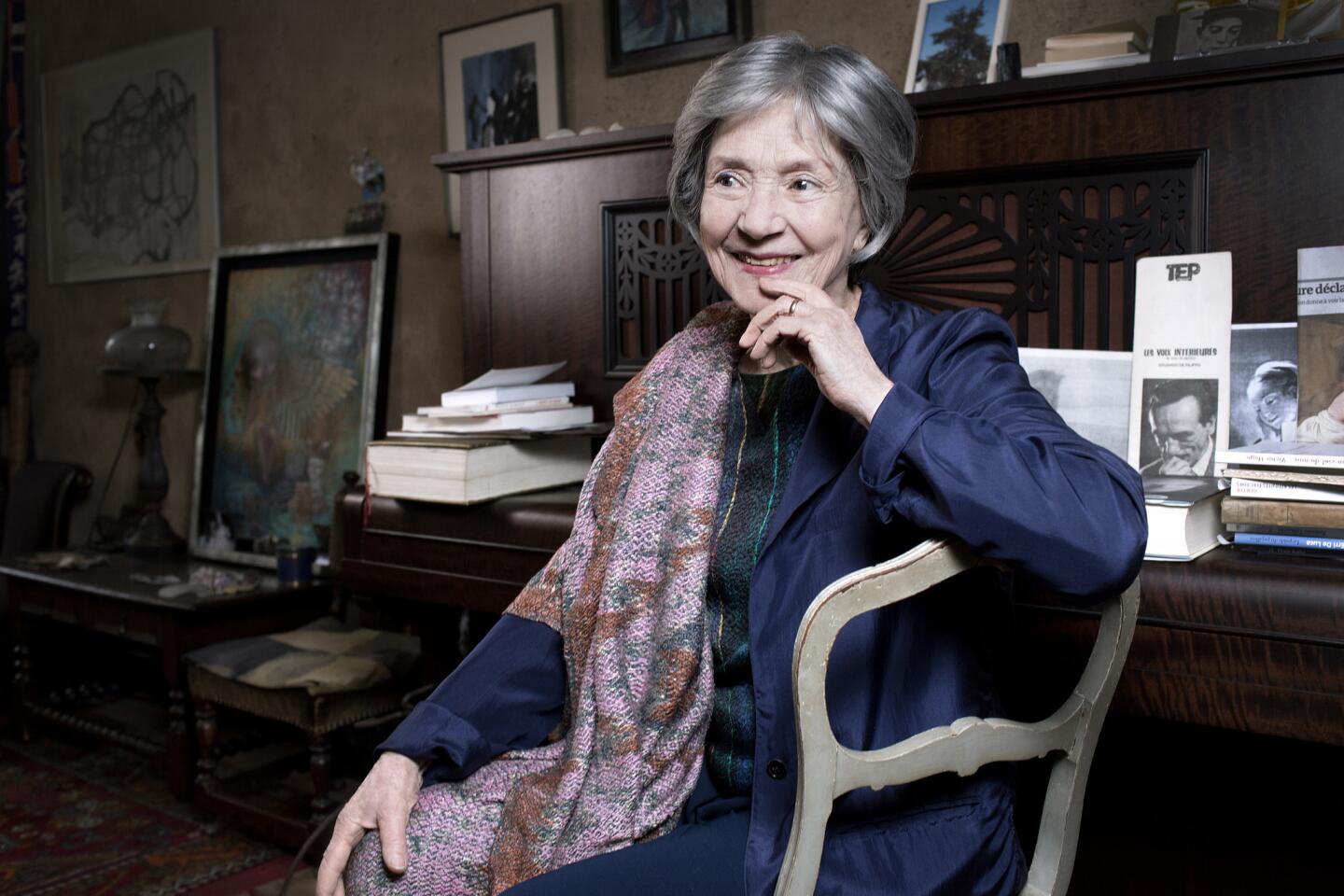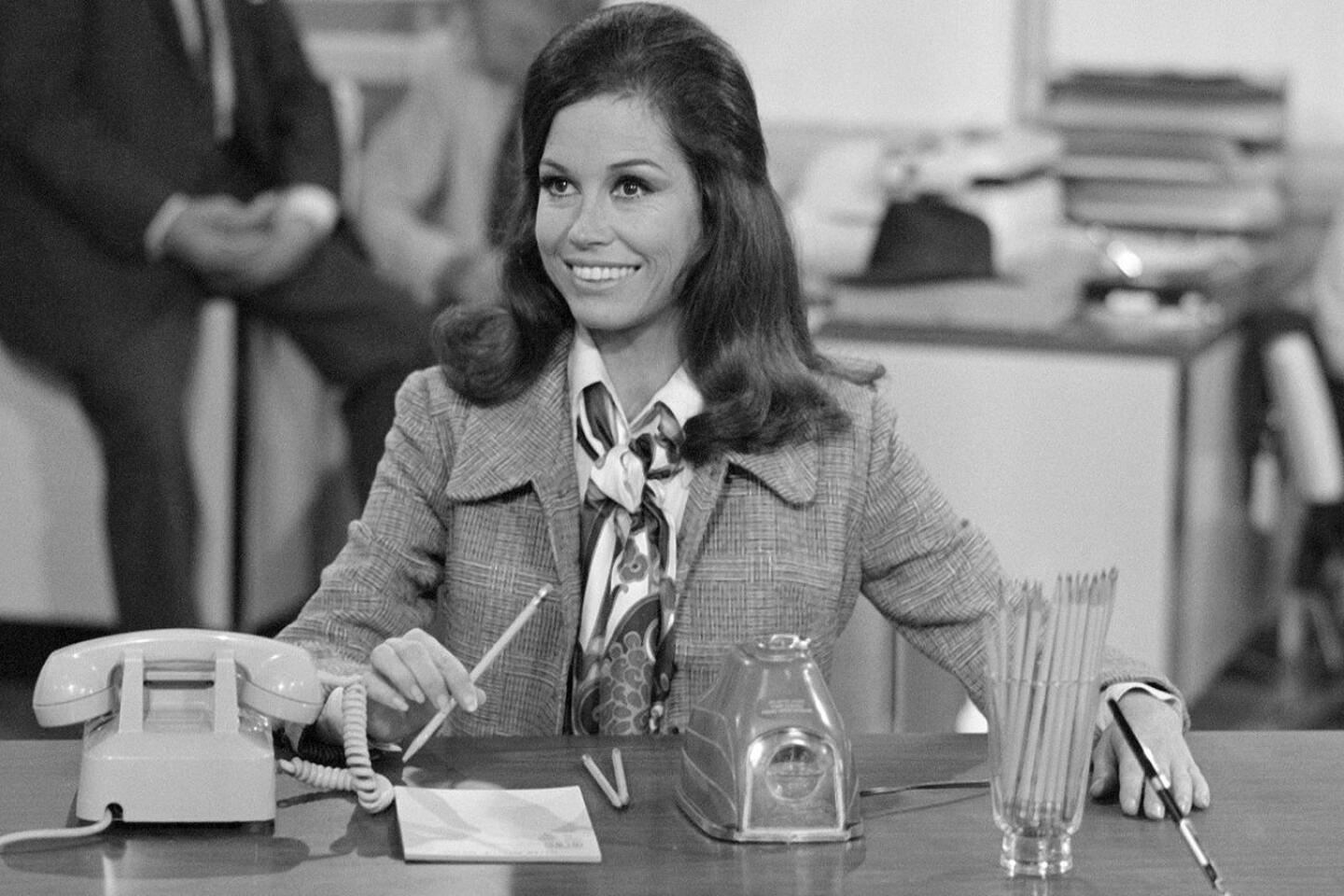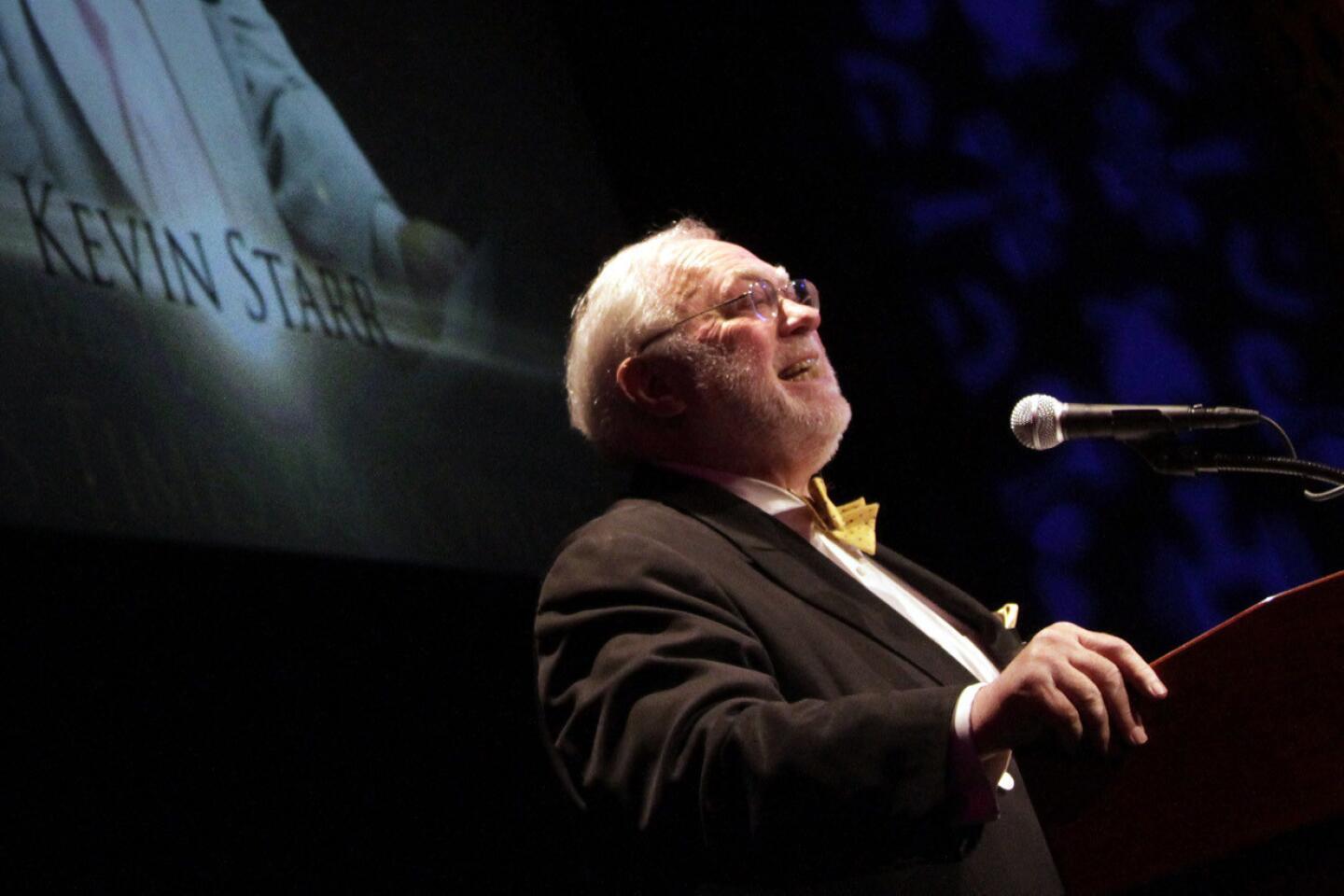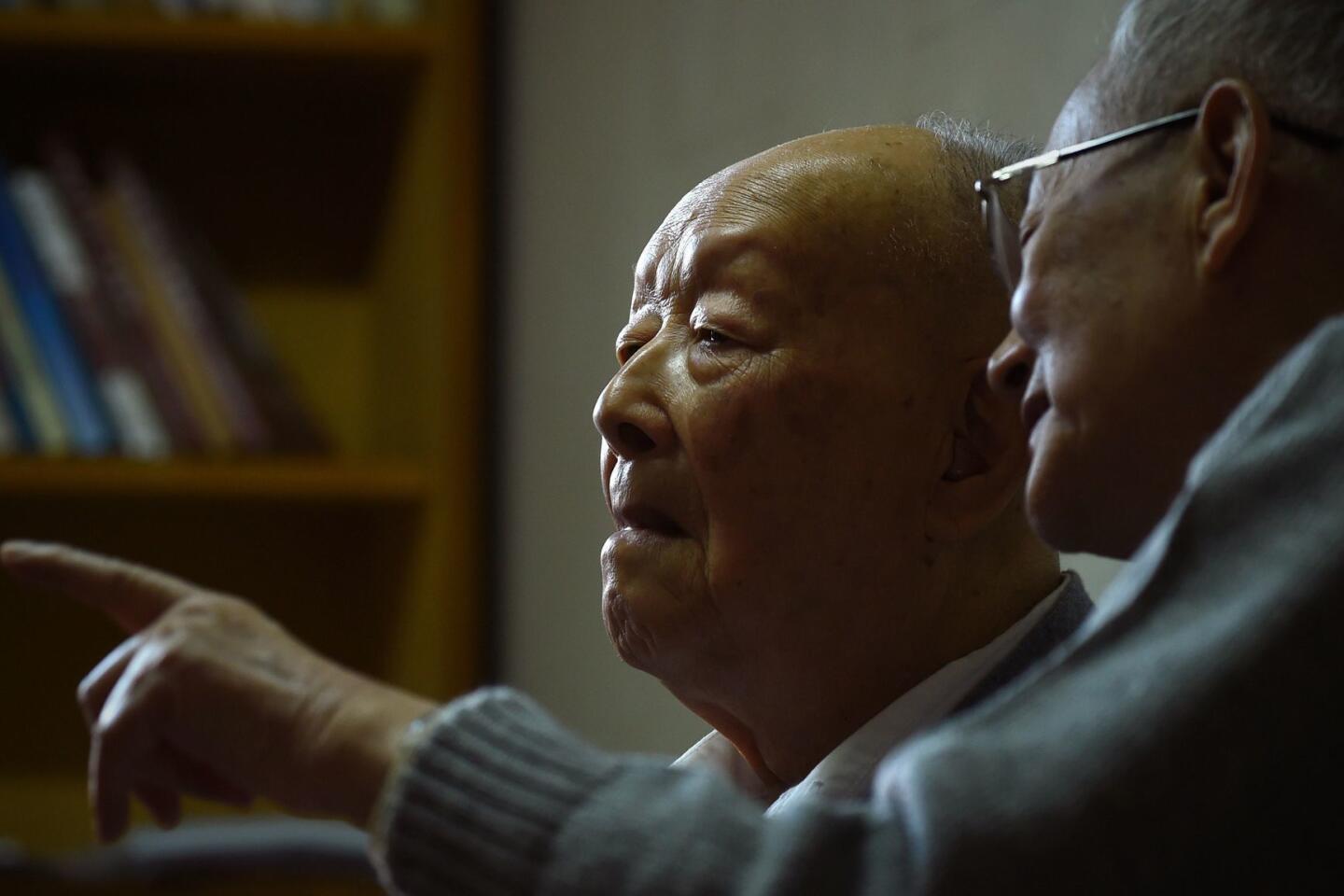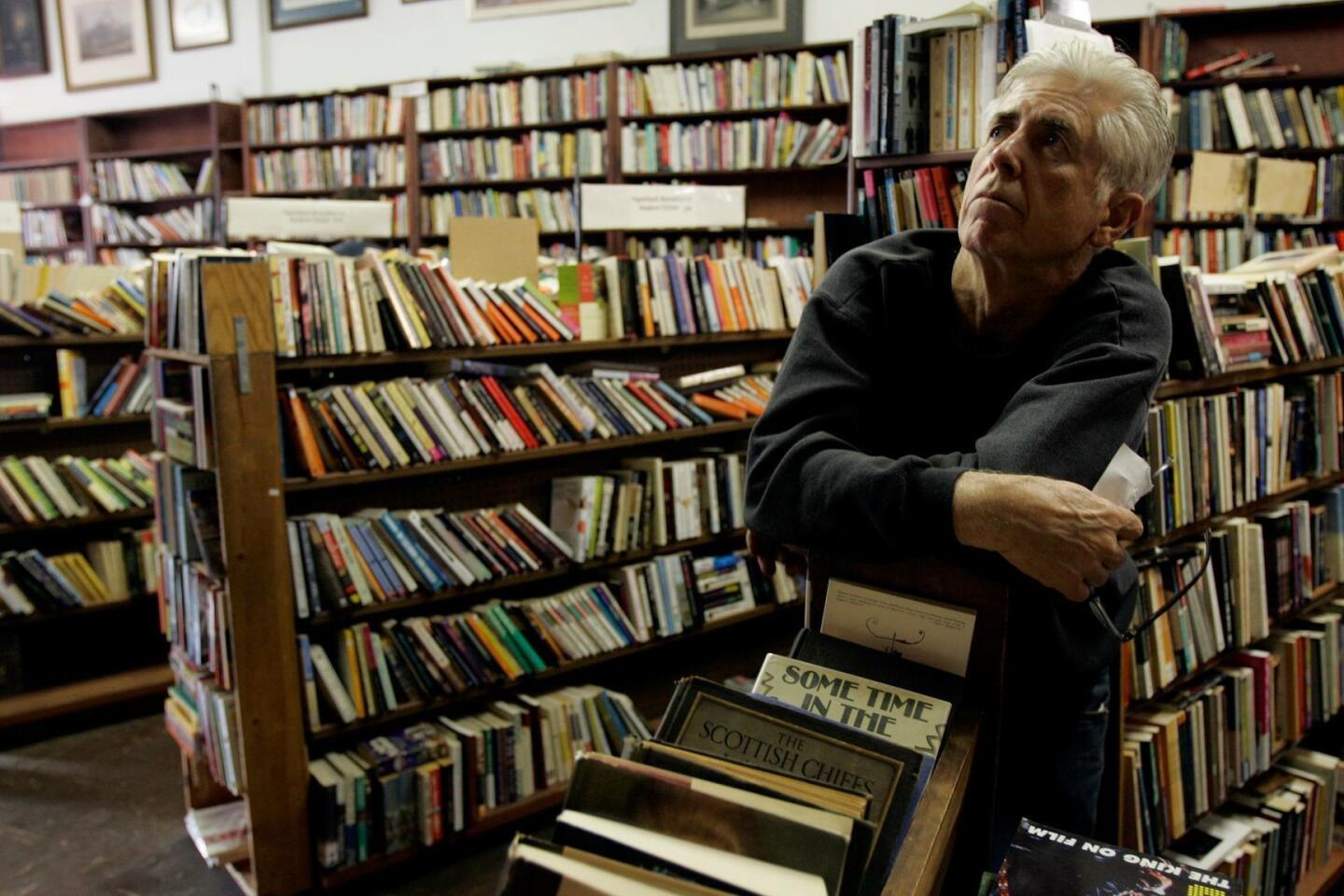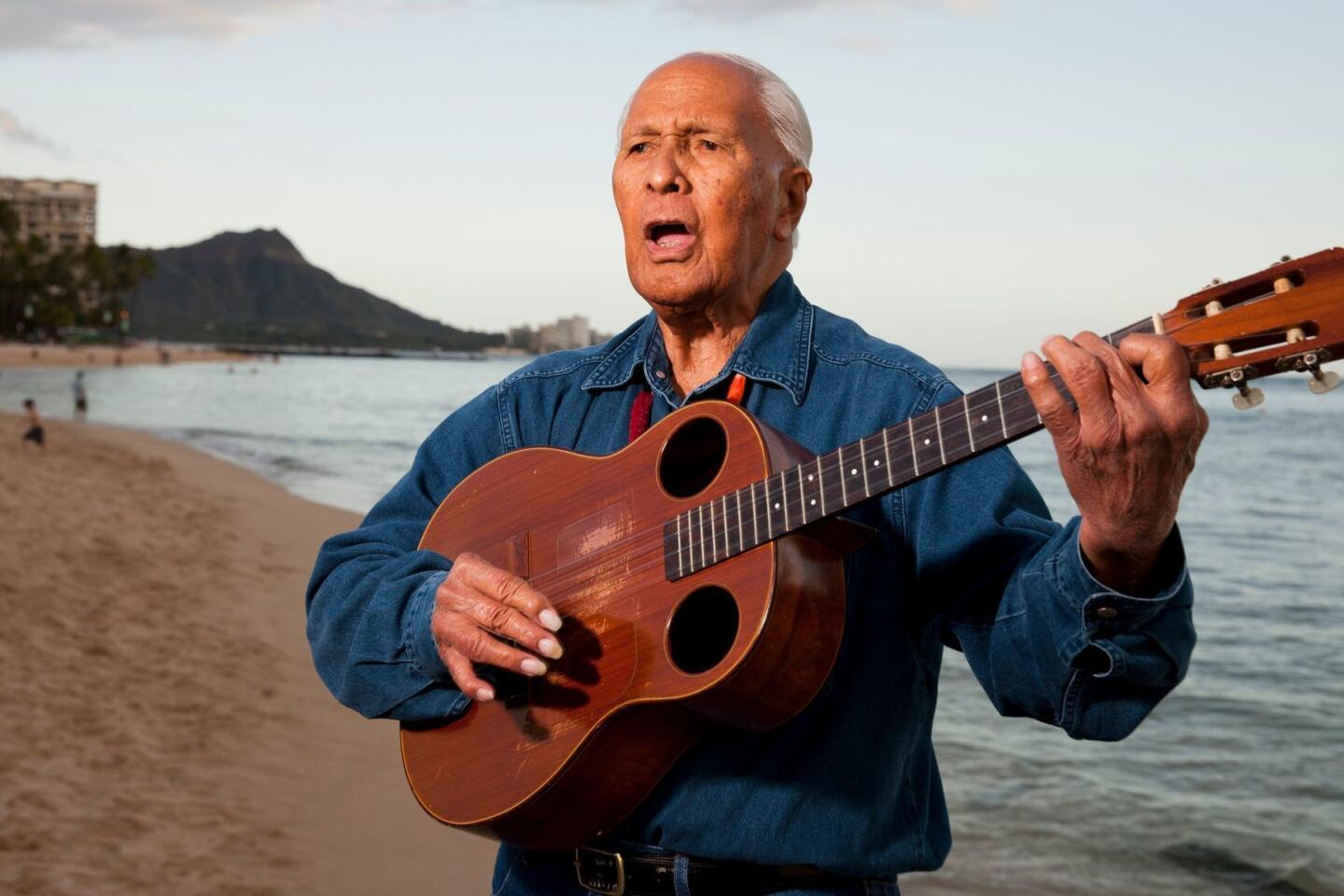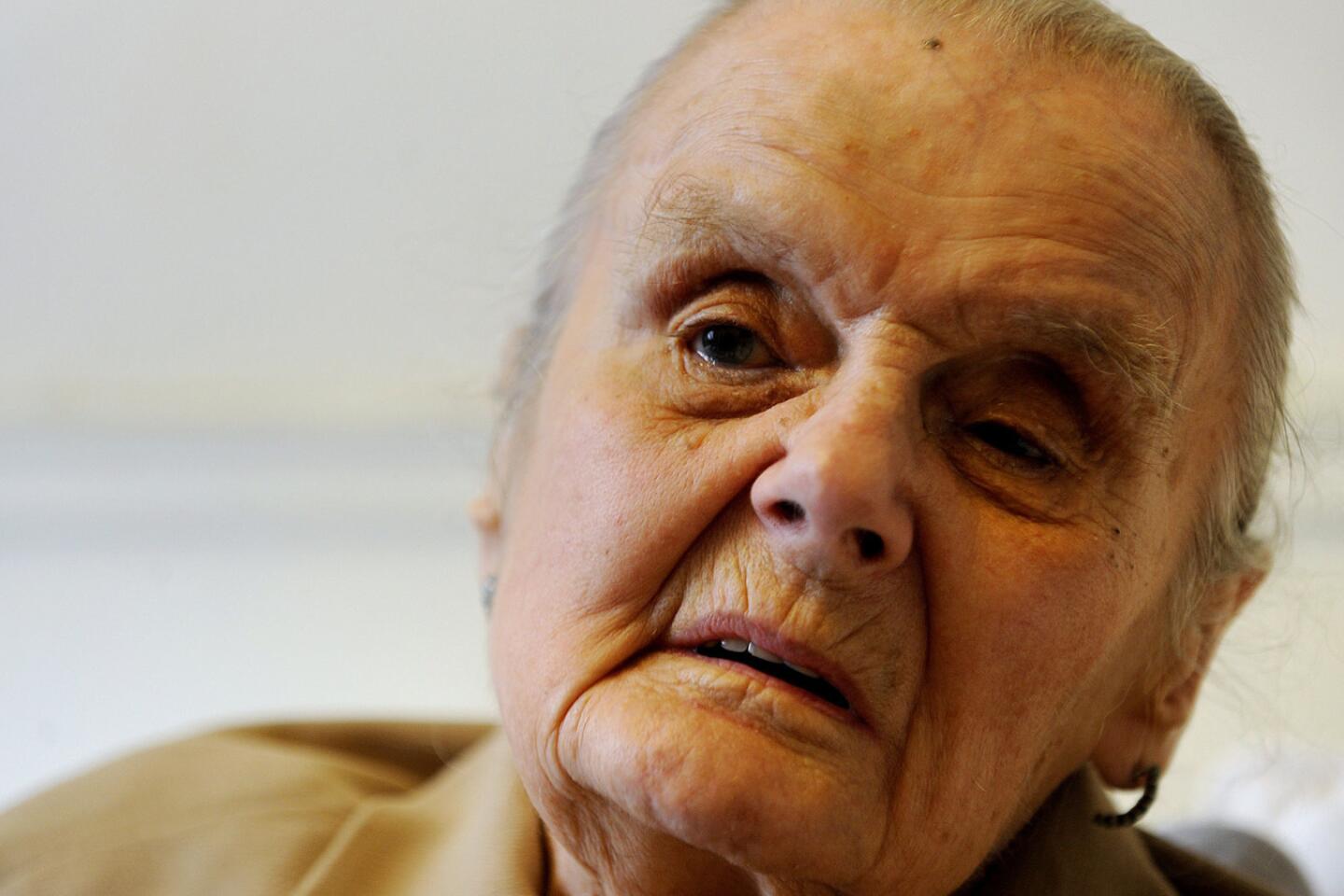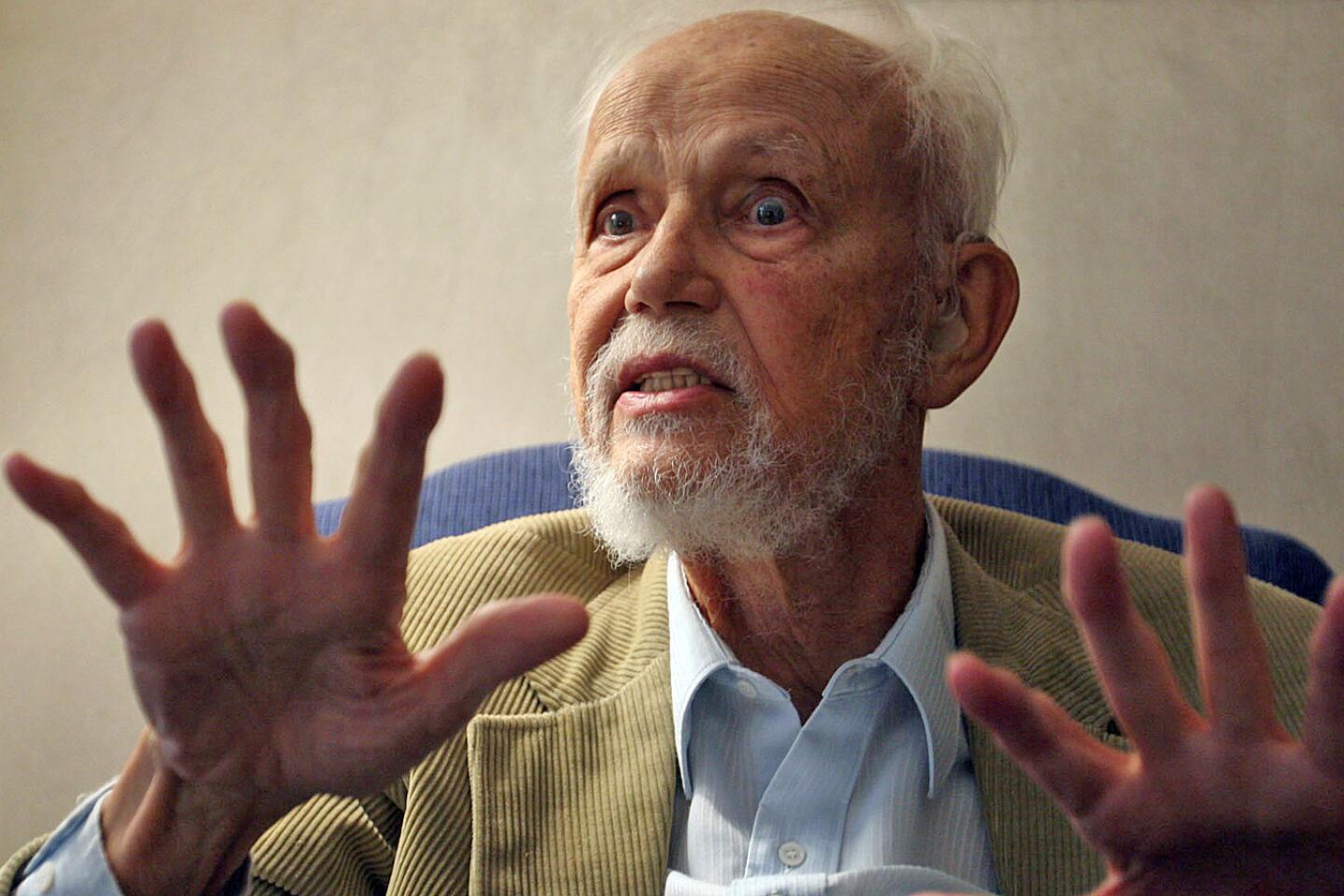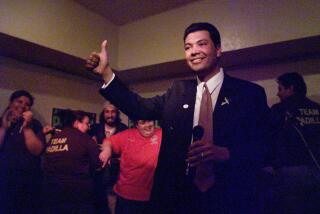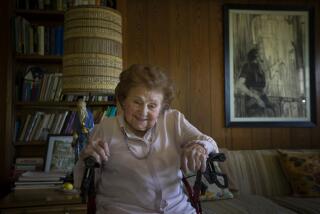Romana Acosta Bañuelos sat quietly at a White House budget meeting in 1971 and listened intently to the economists discussing numbers of a size she couldn’t have even dreamed of when she was young.
When a man asked for a math calculation, Acosta Bañuelos piped up with the answer, but none of the men in the room even glanced in her direction, said Ramona Bañuelos, recalling the story her mother told her.
“Mrs. Acosta Bañuelos is right,” an economist said moments later, after punching the numbers into his calculator.
Treasury Secretary John Connally asked her after the meeting how she figured out so quickly what it took an economist with a machine to calculate. “In Mexico, we learned to do numbers in our head,” she replied. She had attended school only up to sixth grade.
It was that self-sufficient, entrepreneurial mentality Acosta Bañuelos learned as a young girl in rural Mexico that led President Nixon to appoint her as U.S. treasurer in 1971, the first Latina to hold that position and the highest ranking Mexican American appointee in the Nixon administration.
In a career that stretched from a small Arizona town to the heights of the business world as head of a multimillion-dollar Mexican food company and a founder of the first bank for Mexican Americans in California, Acosta Bañuelos helped open doors that Latinos in America often found closed to them.
She died of pneumonia in Redondo Beach on Jan. 15, surrounded by family. She was 92 and had been suffering from dementia.
Acosta Bañuelos was born in the small mining town of Miami, Ariz., in 1925 to immigrant parents, but was one of thousands who left the country during the Great Depression when the government ordered the mass repatriation of Mexicans and Mexican Americans. She was seven when she moved to her parents’ native Sonora, Mexico. At 15, she married and by 18, she had two sons.
She later divorced and moved to Los Angeles, where she worked as a waitress and met her second husband. She taught herself English by reading comic books and with $500 in savings she went on to invest in a tortilla business.
Eventually, she bought out her business partners and the tortilla business grew as people requested items like tamales and Ramona’s signature frozen wrapped burritos.
When a group of businessmen seeking to establish a bank approached her husband, he directed them to his wife.
“You don’t know my wife,” he would tell the hesitant men, Bañuelos said. “Once you meet her, you will forget I ever existed.”
Acosta Bañuelos steered the Pan American Bank through discrimination from officials, who would tell the board that they didn’t understand why “peons” would want to start a bank, Bañuelos said. Acosta Bañuelos always stood her ground.
The bank taught many Mexican Americans who didn’t trust financial institutions how to use banks, take out loans and make deposits, which eventually helped the community buy homes, start businesses and spur economic growth, said Herman Sillas, Acosta Bañuelos’ attorney and friend.
When Nixon’s administration was seeking a Mexican American woman to work for the White House, officials were impressed by Acosta Bañuelos’ accomplishments and asked her to submit her name as a U.S. treasurer nominee.
“She was extremely nervous,” her daughter said. “She told my father ‘Alejandro, que voy a hacer? I don’t know what a treasurer does.’”
He told her to do it anyway, because it wasn’t likely she would get the job and it would be an honor just to be considered, Bañuelos said.
But she got the nomination, and when she did, it was not without controversy. Immigration officials raided Ramona’s and found immigrants who were undocumented working at the company, leaving her nomination in doubt.
The company’s union withdrew from the company and convinced workers to go on strike, protesting the exploitation of immigrants. Civil rights activist Cesar Chavez testified against Acosta Bañuelos at the nomination hearing.
The Senate committee ruled that Acosta Bañuelos had no knowledge of the workers and that she had been unfairly targeted in order to embarrass the Nixon administration, clearing the way for her to become U.S. treasurer.
In office, she found the department too short-staffed and ill-equipped to handle a backlog of work. She personally went through a batch of applications, where she discovered many applications from minorities pushed to the bottom of the stack, Bañuelos said.
Her assistants complained to Connally about her work style, but he responded by saying: “By God, you mean to tell me she’s actually working?” Bañuelos said.
Washington, she said, had rarely seen a treasurer roll up their sleeves and do this brand of work.
1/46
The Santa Barbara writer created one of the first modern hard-boiled female private eyes and topped bestseller lists for decades, inspiring loyal readers to name their daughters after the series’ heroine, Kinsey Millhone. She was 77. Full obituary
(Carolyn Cole / Los Angeles Times) 2/46
The veteran sports broadcaster was long recognized as one of the most versatile and perhaps most enthusiastic announcers of his era. He also was an author, a longtime fixture at Pasadena’s Rose Parade, the host of several sports-themed TV game shows and was still calling San Diego Padres baseball games in his later years. He was 82. Full obituary
(Lenny Ignelzi / Associated Press) 3/46
Lee, elected in 2011, was the first Chinese American mayor of San Francisco, home to the oldest Chinatown in the United States. He oversaw years of dramatic growth that transformed the city’s skyline while also sending real estate values to stratospheric levels. He was 65. Full obituary
(David Butow / For The Times) 4/46
The singer and actor became a TV icon in the 1960s playing the lovably naïve Gomer Pyle on “The Andy Griffith Show” and the spinoff series “Gomer Pyle, U.S.M.C.” He was 87. Full obituary
(CBS Photo Archive / Getty Images) 5/46
Called “the Elvis of Opera” and the “Siberian Express” by some, Hvorostovsky was known for his velvety baritone voice, dashing looks and shock of flowing white hair. He was 55. Full obituary
(Shiho Fukada / Associated Press) 6/46
The syndicated gossip columnist’s mixture of banter, barbs, and bon mots about the glitterati helped her climb the A-list as high as many of the celebrities she covered. She was 94. Full obituary
(Stephen Chernin / Associated Press) 7/46
The fashion iconoclast’s clingy styles helped define the 1980s. Naomi Campbell was a favored model, and Michelle Obama wore his designs as U.S. first lady. He was 77. Full obituary
(Barbara Davidson / Los Angeles Times) 8/46
Kaji was the founding president of the Japanese American National Museum, established in 1992 in Little Tokyo. Years earlier, he established his own accounting firm and was part of a group that founded Merit Savings & Loan, one of the first and one of the few Japanese American-owned banks. He was 91. Full obituary
(Edward Ornelas / Los Angeles Times) 9/46
As one of the founding fathers of rock ’n’ roll, Fats Domino blazed a singular path in the history of popular music. Pounding a piano and booming in a baritone both warm and conversational, he gave the nascent genre a shot of rhythm and blues, jazz and boogie woogie from his native New Orleans. He was 89. Full obituary
(AFP / Getty Images) 10/46
Best known for his portrayal of the sharp-tongued butler in the TV sitcoms “Soap” and “Benson,” Guillaume also played Nathan Detroit in the first all-black version of “Guys and Dolls” and became the first African American to sing the title role in “The Phantom of the Opera,” appearing with an otherwise all-white cast in Los Angeles. He was 89. Full obituary
(Ann Johansson / For The Times) 11/46
Hefner built a publishing and entertainment empire on the idea that Americans should shed their puritanical hang-ups and enjoy sex. As the founder of Playboy magazine, he pitched an alternative standard — swinging singlehood — which portrayed the desire for sex as being as normal as craving apple pie. He was 91. Full obituary
(George Brich / Associated Press) 12/46
The prolific character actor and occasional leading man brought a soulful, hangdog presence to such varied films as “Alien,” “Paris, Texas,” “Repo Man” and “Pretty in Pink,” becoming a favorite of film fans and directors alike. He was 91. Full obituary
(Richard Derk / Los Angeles Times) 13/46
The gay rights pioneer brought a Supreme Court case that struck down parts of a federal law that banned same-sex marriage and led to federal recognition for gay spouses. She was 88. Full obituary
(Richard Drew / Associated Press) 14/46
Stomping over miniature bridges and buildings in a rubber suit, Nakajima portrayed Godzilla, the fire-breathing, screeching monster that became Japan’s star cultural export and an enduring symbol of the pathos and destruction of the Atomic Age. Nakajima said he invented the character from scratch, and developed it by going to a zoo to study how elephants and bears moved. He was 88. Full obituary
(Junji Kurokawa / Associated Press) 15/46
Kanno spent what should have been his final high school years confined to a World War II-era internment camp. He went on to become one of America’s first Japanese American mayors as an early-day politician in Orange County. He was 91. Full obituary
(Mark Boster / Los Angeles Times) 16/46
Romero will be remembered best for co-writing and directing “Night of the Living Dead.” The “Living Dead” franchise went on to create a subgenre of horror movies whose influence across the decades has endured, seen in films like “The Purge” and TV shows such as “The Walking Dead.” He was 77. Full obituary
(Amy Sancetta / Associated Press) 17/46
The Oscar-winning actor appeared in classic films such as Alfred Hitchcock’s “North By Northwest” and starred in the “Mission: Impossible” television series in the 1960s. He won his Academy Award for his portrayal of washed-up Bela Lugosi in Tim Burton’s “Ed Wood.” He was 89. Full obituary
(CBS Photo Archive / CBS via Getty Images) 18/46
The French survivor of Nazi concentration camps and a European Parliament president was one of France’s most prominent female politicians. She was best known in France for leading the heated battle to legalize abortion in the 1970s. France’s abortion rights law is still known four decades later as the “Loi Veil.” She was 89. Full obituary
(AFP / Getty Images) 19/46
The British author created Paddington Bear, the marmalade-loving teddy in a duffel coat and floppy hat. His creation become an icon immortalized in print, on screens and as countless stuffed toys. Bond was 91. Full obituary
(Sang Tan / Associated Press) 20/46
Pressman, center, was an Emmy-winning journalist who worked at WNBC for more than 50 years after stints at New Jersey’s Newark Evening News and the New York World Telegram and Sun. He covered the 1956 sinking of the Italian ocean liner Andrea Doria, riots at the 1968 Democratic National Convention, the Woodstock festival in 1969 and the terror attacks on Sept. 11, 2001. He was 93. Full obituary
(Ron Frehm / Associated Press) 21/46
The Santa Cruz entrepreneur opened one of the world’s first surf shops and pioneered the neoprene wetsuit that helped popularize year-round cold-water surfing. He lost his eye in a surfing accident. He was 94. Full obituary
(Dan Coyro / Associated Press) 22/46
The former dictator of Panama often played opposing sides of Cold War-era political battles until he was ousted by his on-again, off-again sponsors and toppled in a U.S. invasion. He was 83. Full obituary
(AFP / Getty Images) 23/46
Deford was an award-winning sports journalist and commentator whose elegant reportage was a staple for years at Sports Illustrated and National Public Radio. He was the first sportswriter awarded the National Humanities Medal. In 2013, President Obama honored him for “transforming how we think about sports.” He was 78. Full obituary
(Carolyn Kaster / AP) 24/46
Perenchio deftly pulled the levers of power to create culturally defining media events, propel political candidates, collect masterpiece artworks and become one of the richest men in Los Angeles. In late 2014, he announced that he would leave much of his collection — at least 47 works valued at more than $500 million — to the Los Angeles County Museum of Art. He was 86. Full obituary
(Genaro Molina / Los Angeles Times) 25/46
The polarizing Fox News founder was credited with turning the news channel into a ratings powerhouse over his 20 years at the helm. He was ousted from the network following sexual harassment charges. He was 77. Full obituary
(Jennifer S. Altman / For The Times) 26/46
The former child star played Joanie Cunningham in the sitcoms “Happy Days” and “Joanie Loves Chachi.” Her more recent credits included “The Love Boat” and “Murder, She Wrote.” She was 56. Full obituary
(Wally Fong / Associated Press) 27/46
Using insult as his weapon of choice and a quick, knowing smirk as his defense, Rickles delighted audiences with his brand of aggressively caustic humor that targeted everyone from unknown “hockey pucks” to big-name celebrities. He was 90. Full obituary
(Jay L. Clendenin / Los Angeles Times) 28/46
A close confidante of Nelson Mandela, Kathrada dedicated his life to opposing apartheid and racism. An African National Congress activist, he played a major role in South Africa’s liberation struggle. He was 87. Full obituary
(Kopano Tlape / EPA) 29/46
The billionaire businessman and philanthropist was the last in his generation of one of the country’s most famously philanthropic families. He was 101. Full obituary
(D. Pickoff / Associated Press) 30/46
The Pulitzer Prize-winning newspaper columnist was part of the wave of practitioners of what came to be known as New Journalism: a group of gifted writers that included Tom Wolfe, Gay Talese, Hunter S. Thompson, Joan Didion and others who reported on the social and cultural upheavals of the 1960s and ’70s. His writing made him a New York City institution for more than 40 years. He was 88. Full obituary
(Mario Cabrera / Associated Press) 31/46
One of the founding fathers of rock ’n’ roll, Berry was an innovator who designed much of the music’s sonic blueprint and became his era’s most creative lyricist. He was 90. Full obituary
(Michael Ochs Archives / Getty Images) 32/46
The Nobel-prize winning poet was known for capturing the essence of his native Caribbean. His work was widely praised for its depth and bold use of metaphor, and its mix of sensuousness and technical prowess. He was 87. Full obituary
(Berenice Bautista / Associated Press) 33/46
The Boxing Hall of Fame trainer and manager handled the careers of 19 champions including heavyweight Evander Holyfield. Duva with his family built the promotional company Main Events into one of boxing’s powerhouses. He was 94. Full obituary
(Mike Groll / Associated Press) 34/46
The silver-haired and dapper Osborne was a bona fide movie connoisseur who displayed his wide knowledge of films as the genial host on Turner Classic Movies since its launch in 1994. Osborne was a longtime columnist for the Hollywood Reporter and the “official biographer” of the Academy Awards. He was 84. Full obituary
(Carolyn Cole / Los Angeles Times) 35/46
Dubbed the “Acrobat of Scat” for his vocal delivery, Jarreau was admired by fans for his imaginative and improvisational qualities. He is best known for his single “We’re in This Love Together” from 1981. He is the only Grammy vocalist to win in the jazz, pop and R&B categories. He was 76. Full obituary
(Felipe Dana / Associated Press) 36/46
Mansfield won the Nobel Prize for helping to invent MRI scanners. In 1978, he was the first person to step inside a whole-body MRI scanner so it could be tested on a human subject. His work, alongside chemist Paul Lauterbur, revolutionized the detection of disease by revealing internal organs without the need for surgery. He was 83. Full obituary
(David Jones / Associated Press) 37/46
Riva’s portrayal of an elderly woman in the 2012 end-of-life drama “Amour” earned her international acclaim and the distinction of being the oldest nominee for a lead actress Oscar. She was 89. Full obituary
(Francois Mori / Associated Press) 38/46
Moore rose to stardom on “The Dick Van Dyke Show” in the 1960s and went on to headline “The Mary Tyler Moore Show,” a highly successful sitcom in the 1970s (pictured). The actress and her television character became so entwined that Moore became a role model for women who sought to challenge the conventions of marriage and family. She was 80. Full obituary
(CBS Photo Archive / Getty Images) 39/46
Cernan, commander of NASA’s Apollo 17 mission, set foot on the moon in December 1972 during his third space flight. He was the last of only a dozen men to walk on the moon. He returned to Earth with a message of “peace and hope for all mankind.” He died at 82. Full obituary
(SSPL / Getty Images) 40/46
The former California state librarian wrote rich cultural, economic and political histories on the birth, growth and maturation of the Golden State. He captured the state’s rise in influence and its singular hold on the public imagination in his sweeping “Americans and the California Dream” series. Full obituary
(Lawrence K. Ho / Los Angeles Times) 41/46
Youguang was a linguist considered to be the father of modern China’s Pinyin Romanization writing system. Adopted by the People’s Republic in 1958, Pinyin has virtually become the global standard because of its simplicity and consistency. He was 111. Full obituary
(Wang Zhao / AFP/Getty Images) 42/46
Dutton was the owner of Dutton’s Books, a Los Angeles landmark with its overflowing shelves and hard-to-find titles. Dutton’s Books on Laurel Canyon Boulevard, along with sister locations in Burbank and downtown Los Angeles, was at the very center of literary L.A. when it opened in 1961. He was 79. Full obituary
(Gina Ferazzi / Los Angeles Times) 43/46
Kamae was one of the most influential Hawaiian musicians of the last half-century and a filmmaker who painstakingly documented the culture and history of the islands. He had long been the face of the Sons of Hawaii, a popular recording group and a pioneering force in traditional island music. He was 89. Full obituary
(Marco Garcia / For The Times) 44/46
The British war correspondent was the first journalist to report the Nazi invasion of Poland that marked the beginning of World War II. She won major British journalism awards, and was made an Officer of the Order of the British Empire by Queen Elizabeth II. She was 105. Full obituary
(Mike Clarke / AFP/ Getty Images) 45/46
The former Iranian president was an aide to Iran’s revolutionary supreme leader, the late Ayatollah Ruhollah Khomeini. Although Rafsanjani’s legacy was tarnished by allegations of corruption and authoritarianism, his backing helped moderate President Hassan Rouhani win election in 2013, setting the Islamic Republic on a path to ending its disputed nuclear program and easing its isolation from the West. He was 82. Full obituary
(Ebrahim Noroozi / Associated Press) 46/46
A scholar of world religions, Smith is best known for his work “The Religions of Man,” first published in 1958. It was reissued as “The World’s Religions” in 1991 and has sold about 2 million copies. His informed yet accessible prose led many laymen to read his books as their introduction to religions of the East and West. He was 97. Full obituary
(Tina Fineberg / Associated Press) Three years later, after the Treasury Department was downsized and restructured, Acosta Bañuelos resigned.
“There was nothing for me to do,” she told the Associated Press. So she returned to Ramona’s Mexican Food Products Inc.
A photograph of Acosta Bañuelos and Nixon now hangs in a conference room at Ramona’s, and the family still has frames of the first printouts of dollar bills with her signature on it. But besides the memorabilia, she was humble and didn’t gloat about her accomplishments. The company she founded was sold in May to her grandson and other partners and now earns about $13 million annually, said Edward Medina, CEO of Ramona’s Food Group.
“When you realize there’s this young girl who rises from a little business and winds up going to Washington...that’s a pretty good step,” Sillas said. “She was a great example for her generation.”
Acosta Bañuelos is survived by her daughter, son and 12 grandchildren.
alejandra.reyesvelarde@latimes.com
